
The school of Electrical and Electronics Technology is envisioned to be a centre for academic excellence and higher learning in the various advanced fields of Electrical Engineering, Electronics Engineering and Instrumentation Engineering. The School and its courses are fully blended by research and innovation in tune with the emerging technological advancements.
This School offers two programmes in B.Tech and two programmes in M.Tech with a full capability in Resarch and Development.
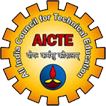
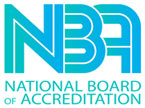

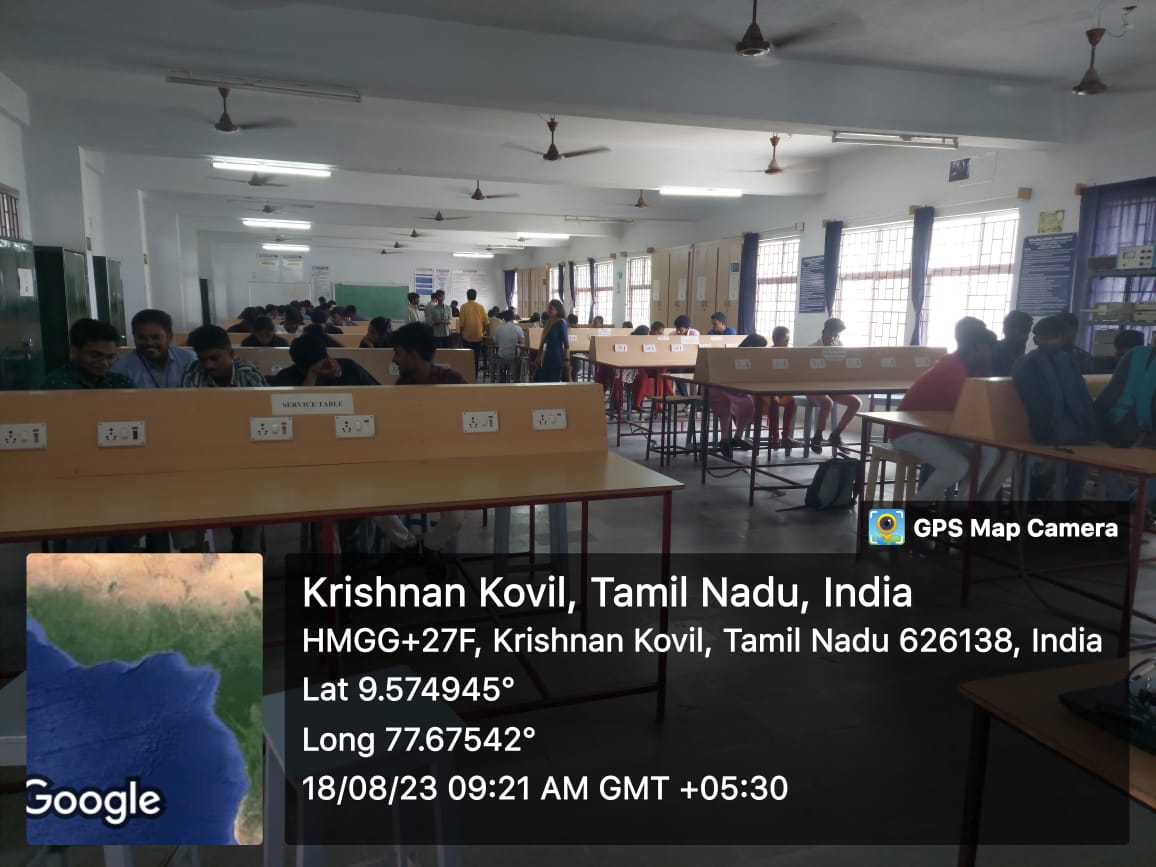
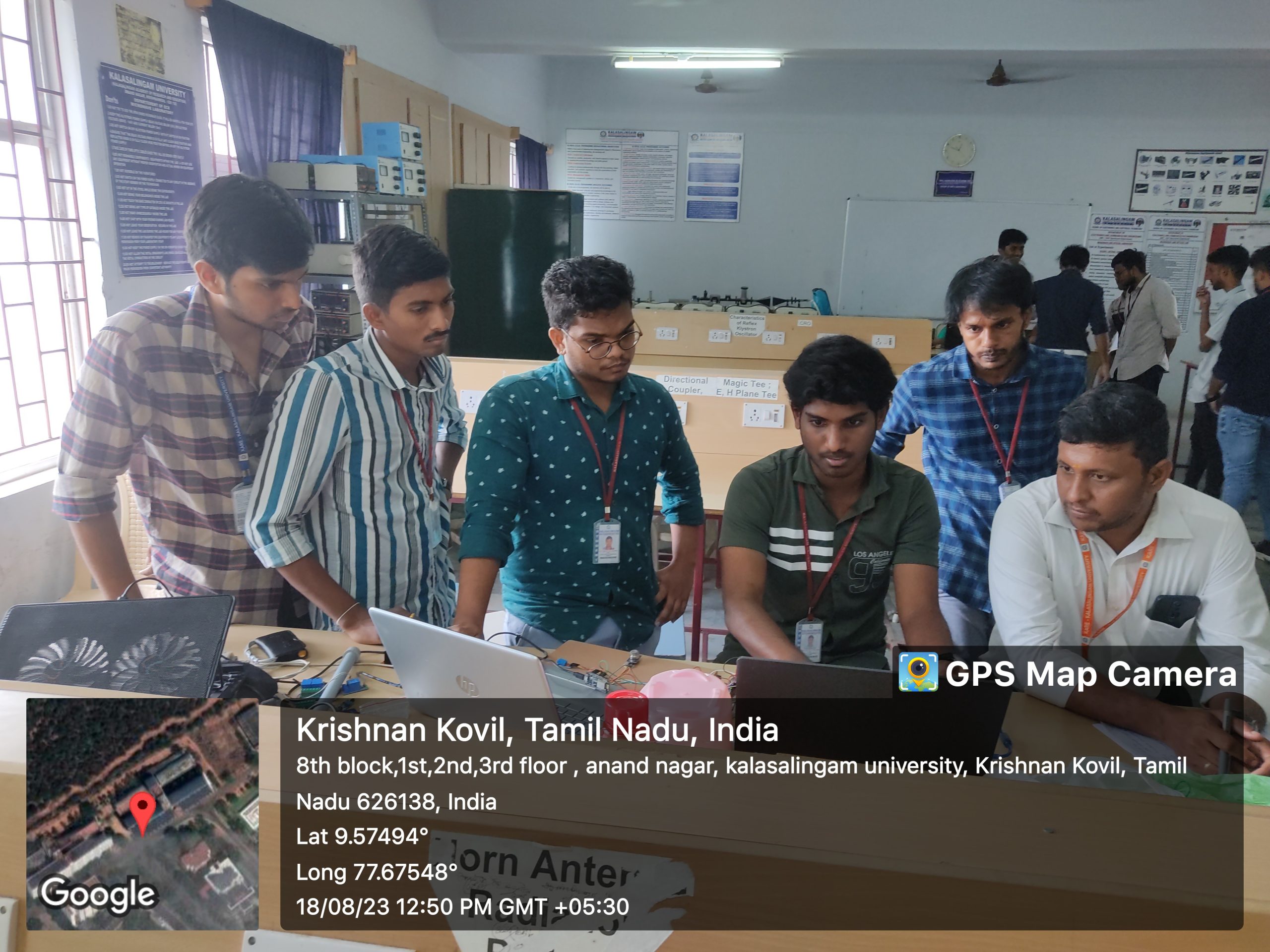
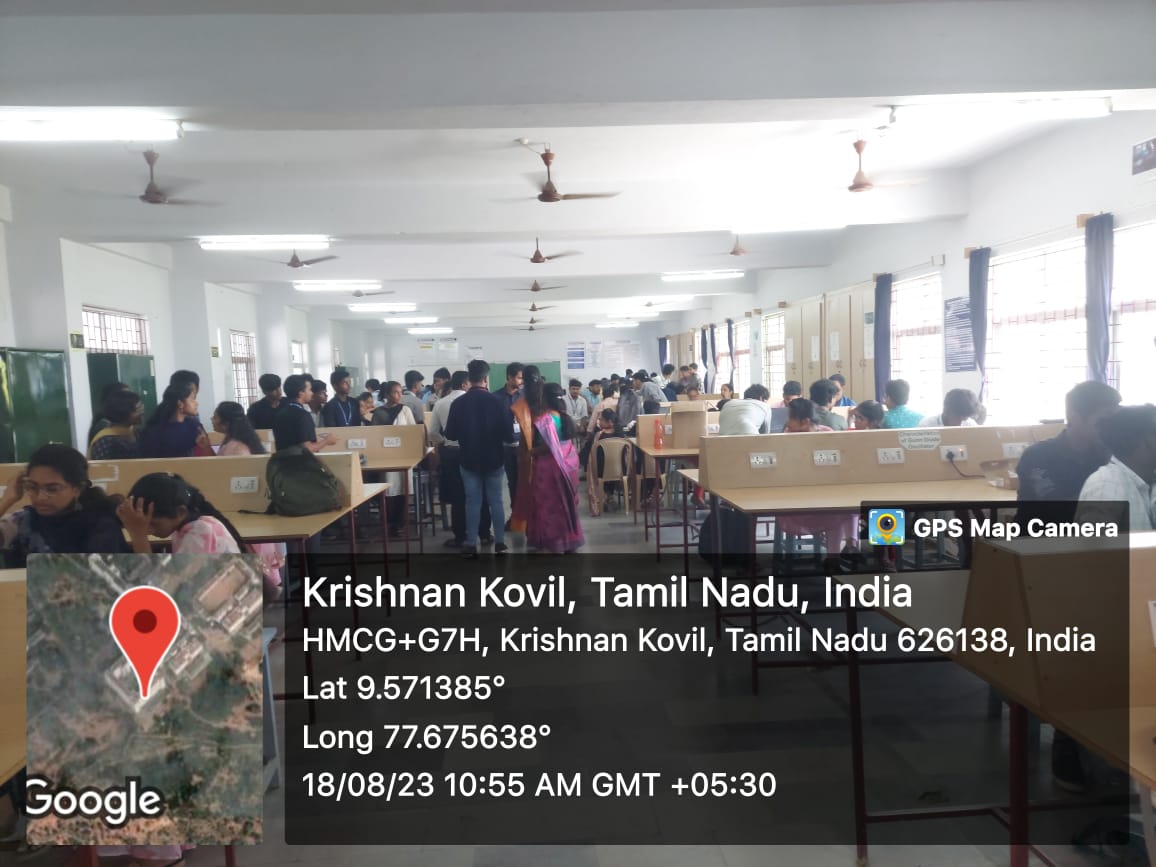
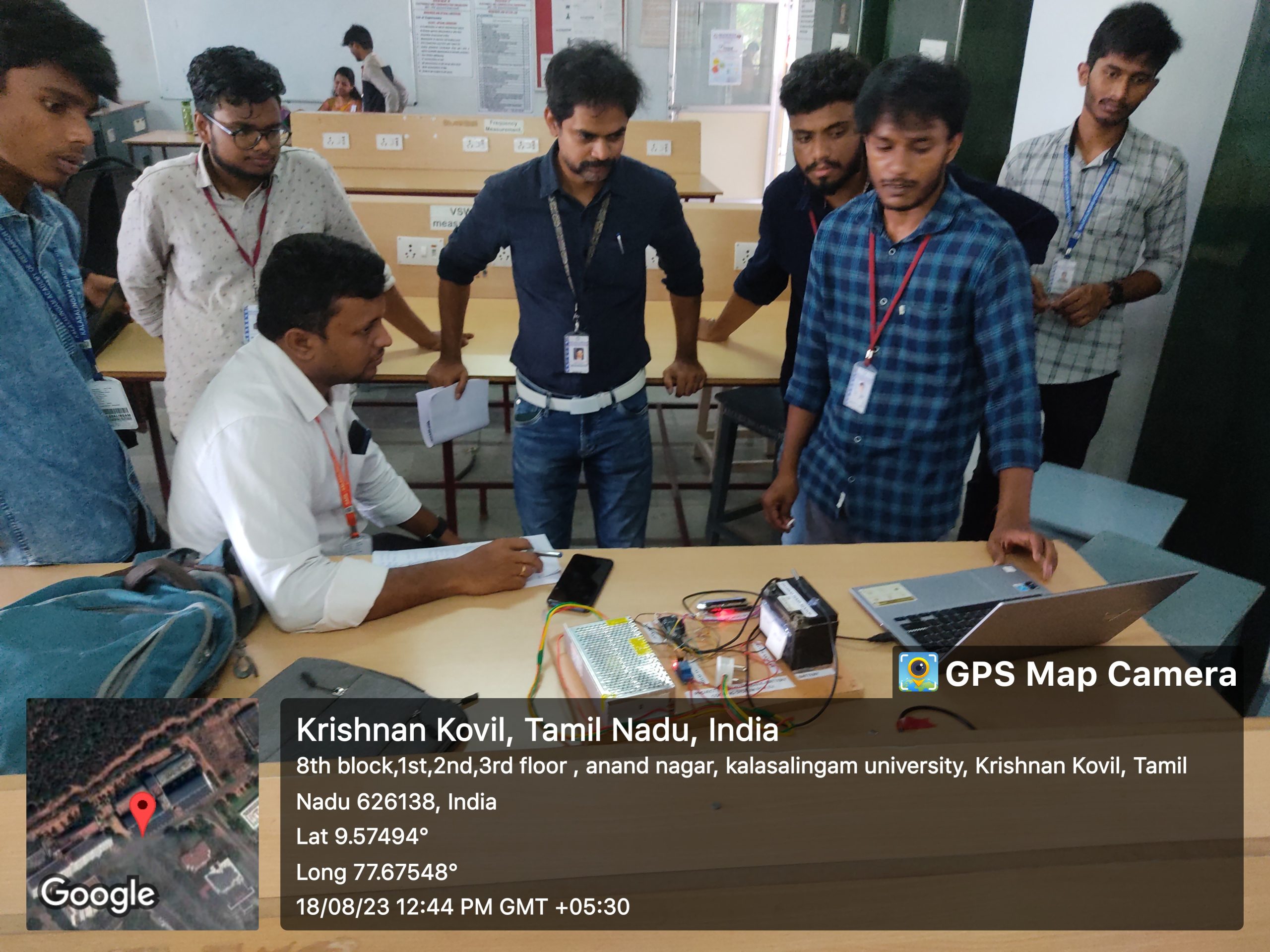
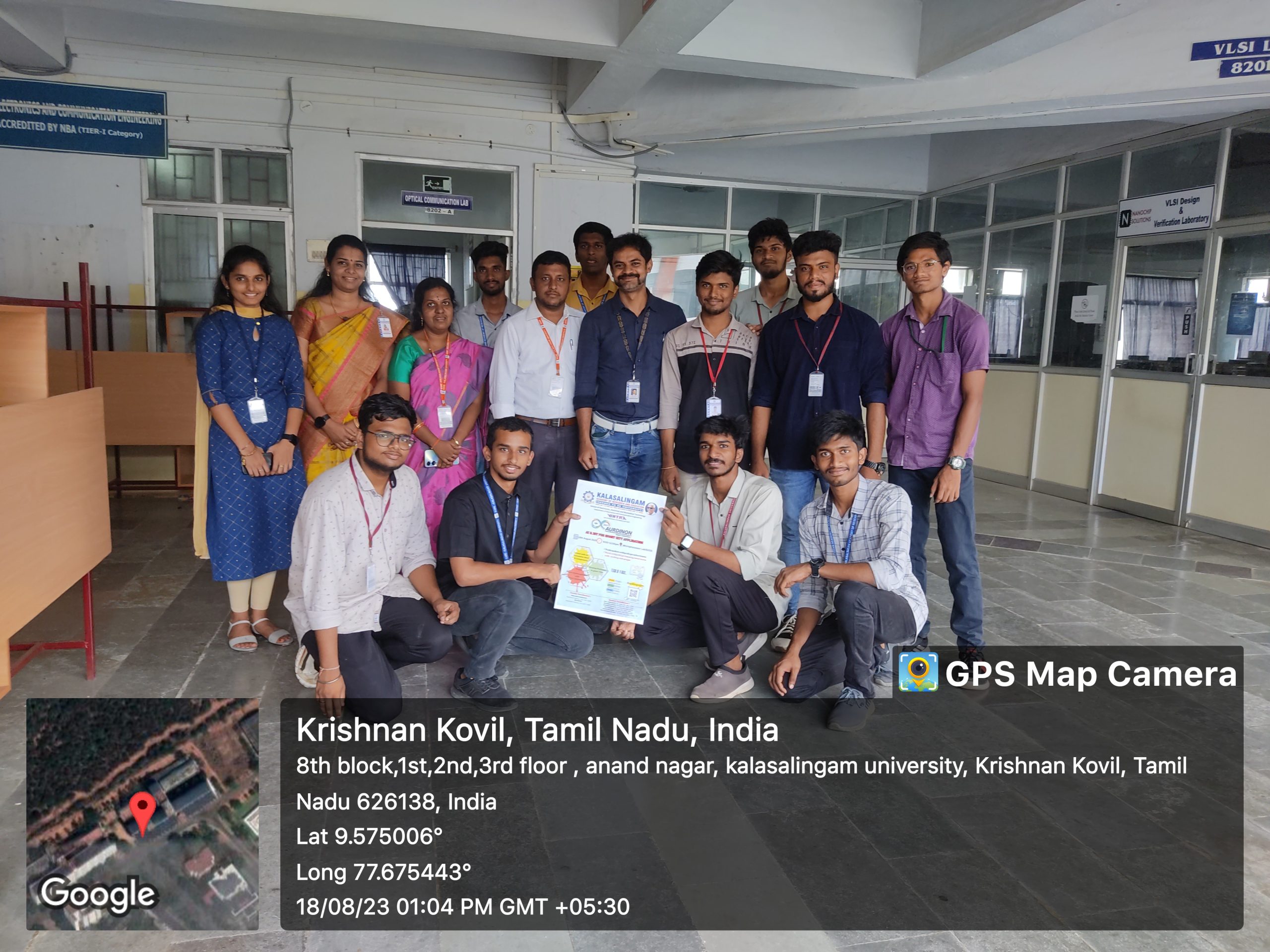
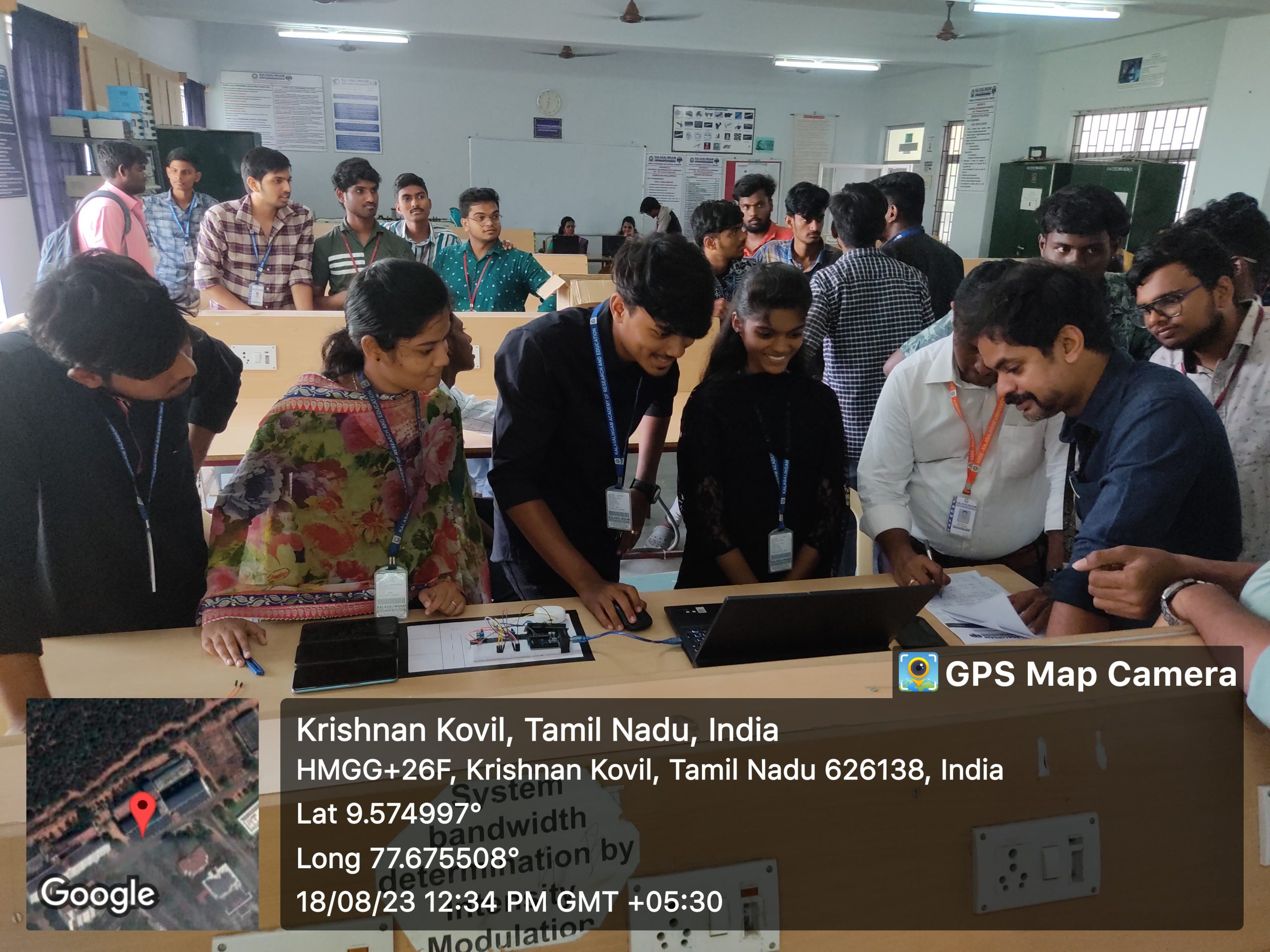






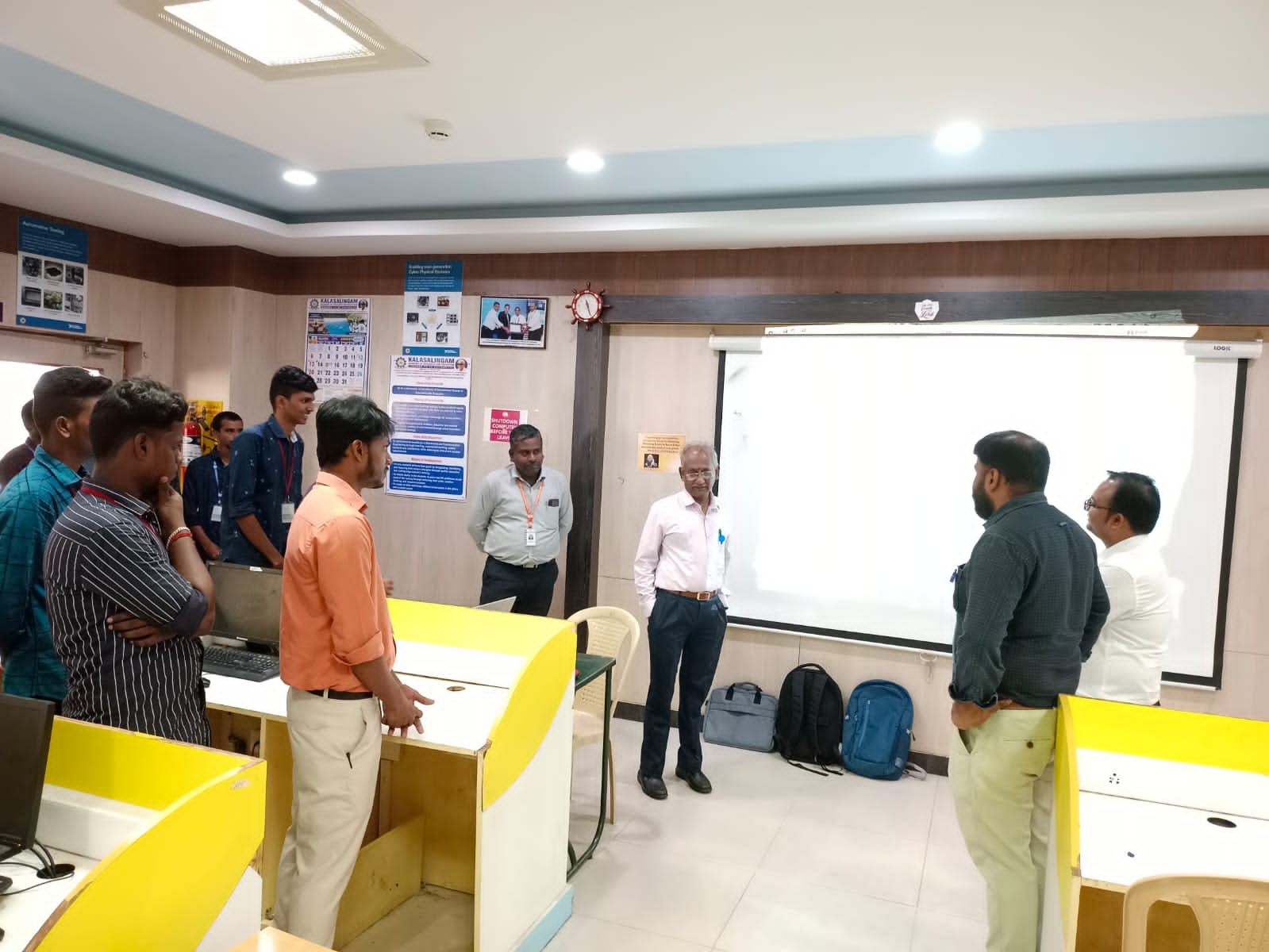


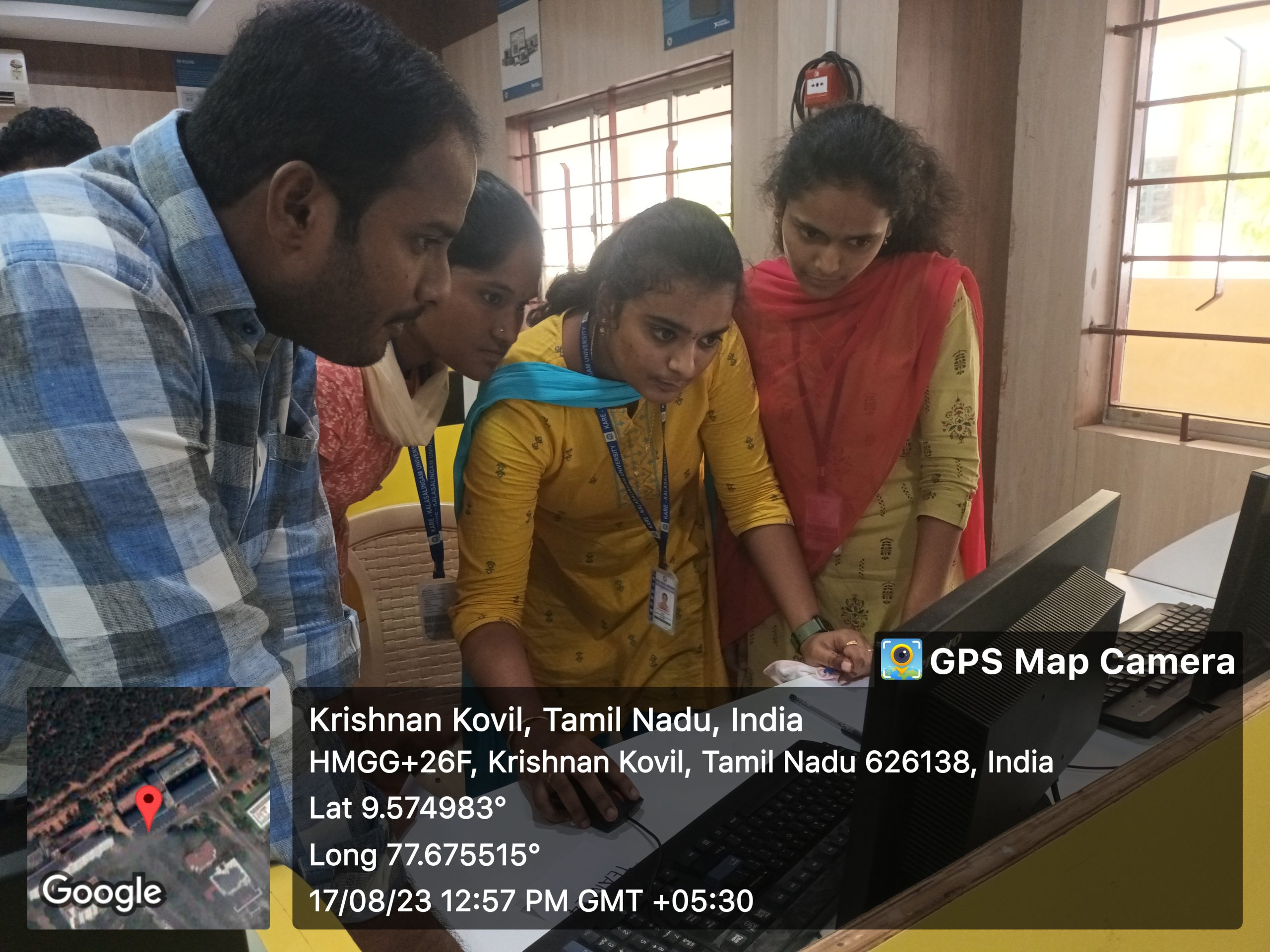




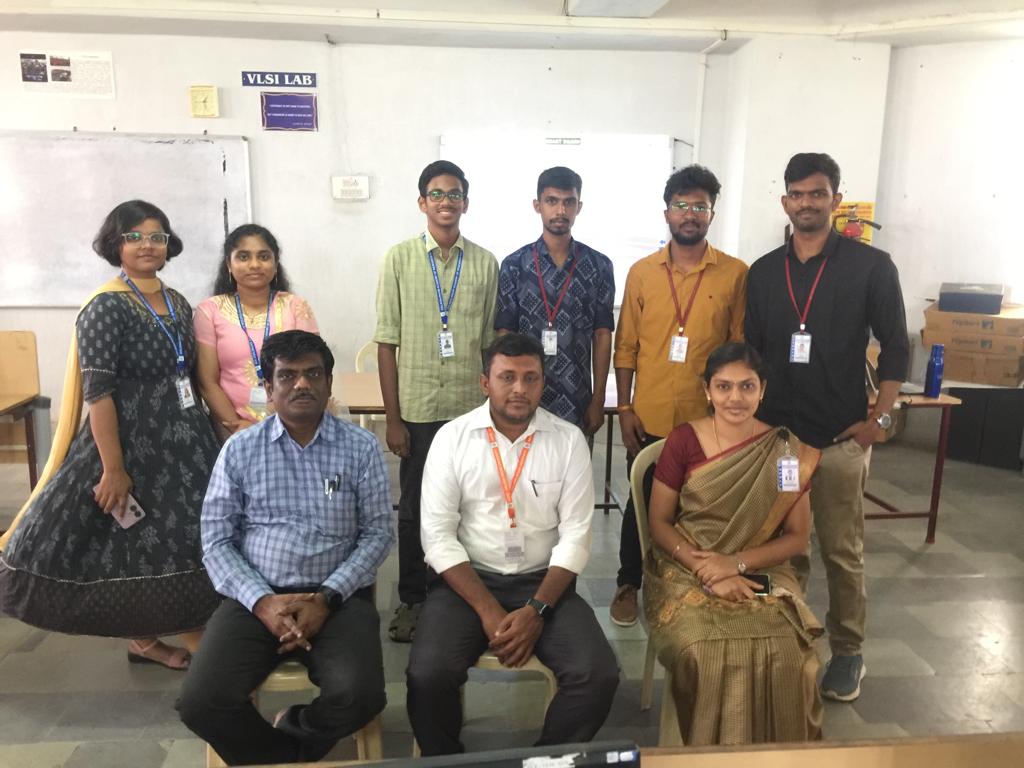
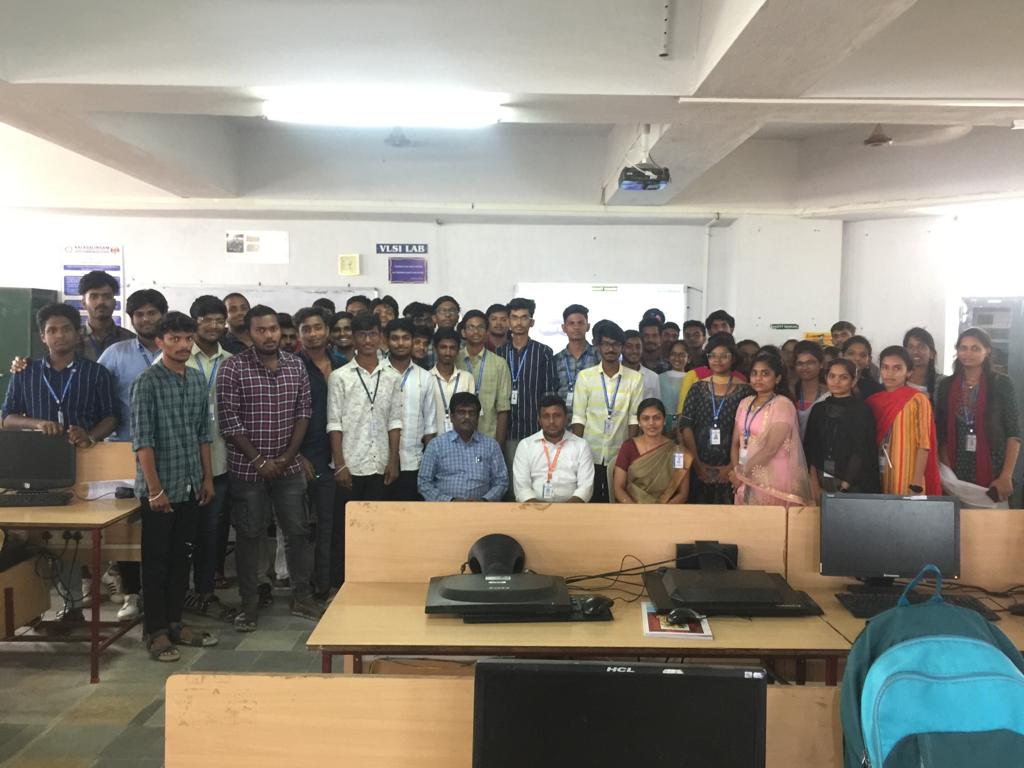
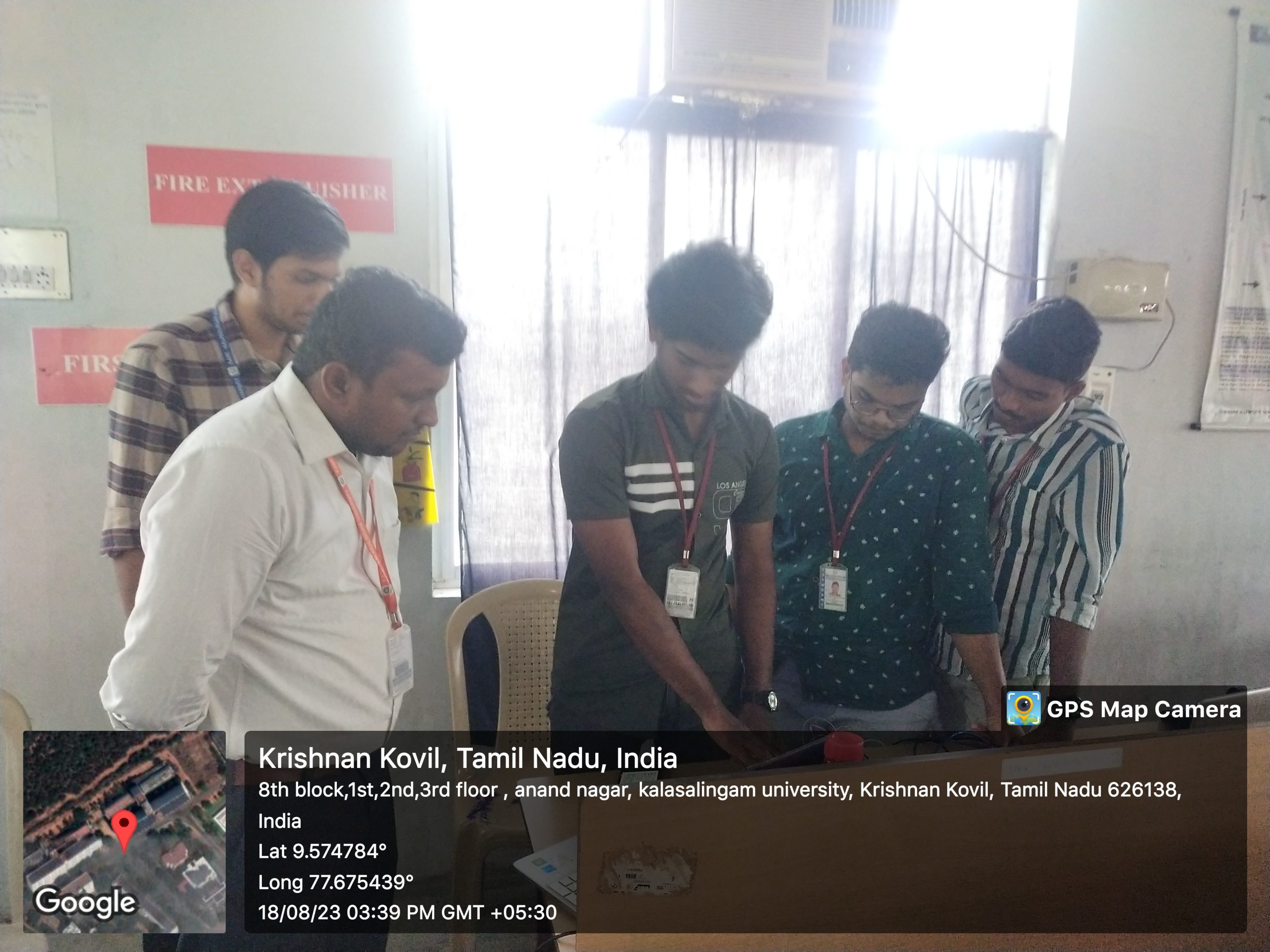
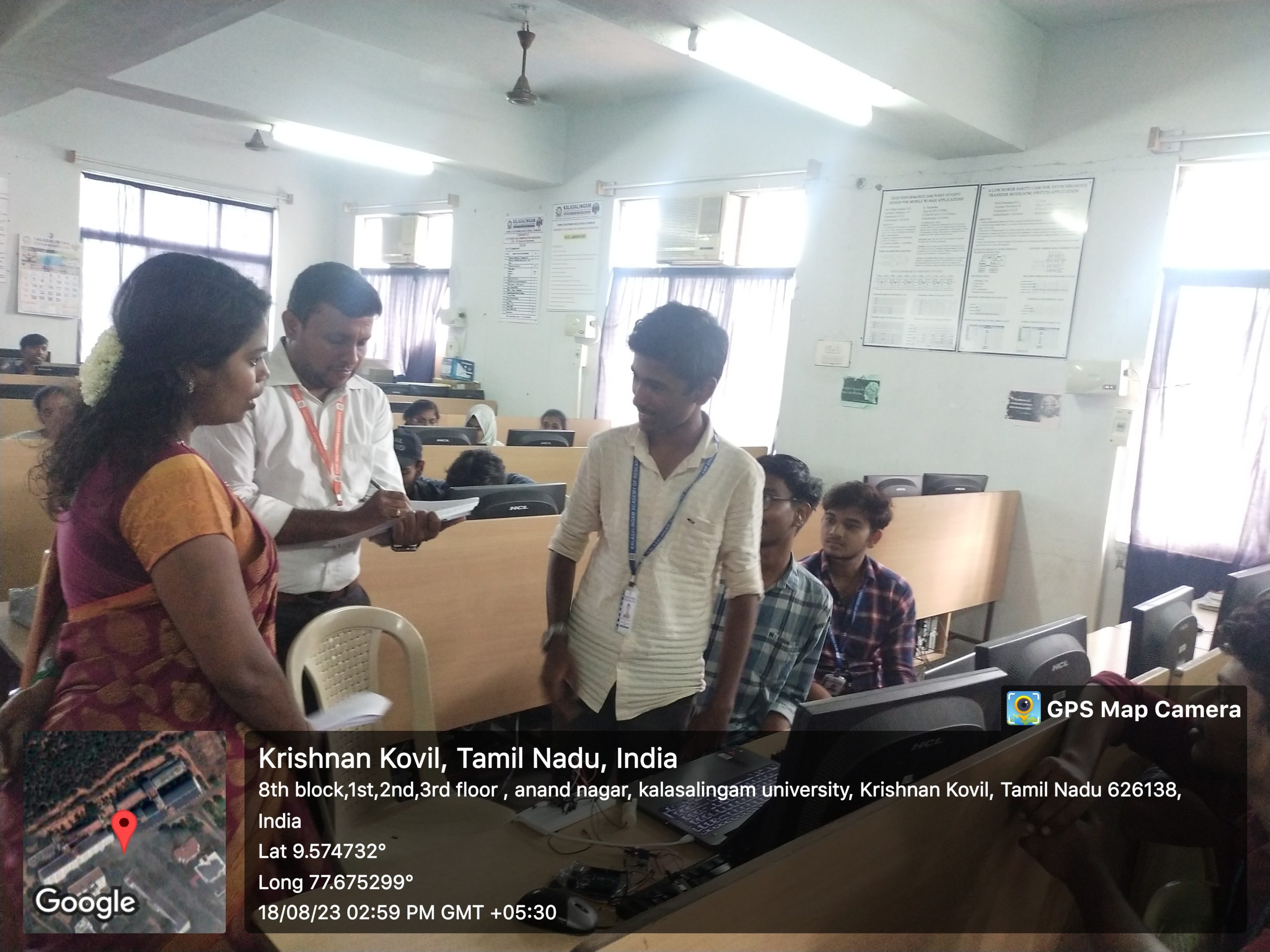
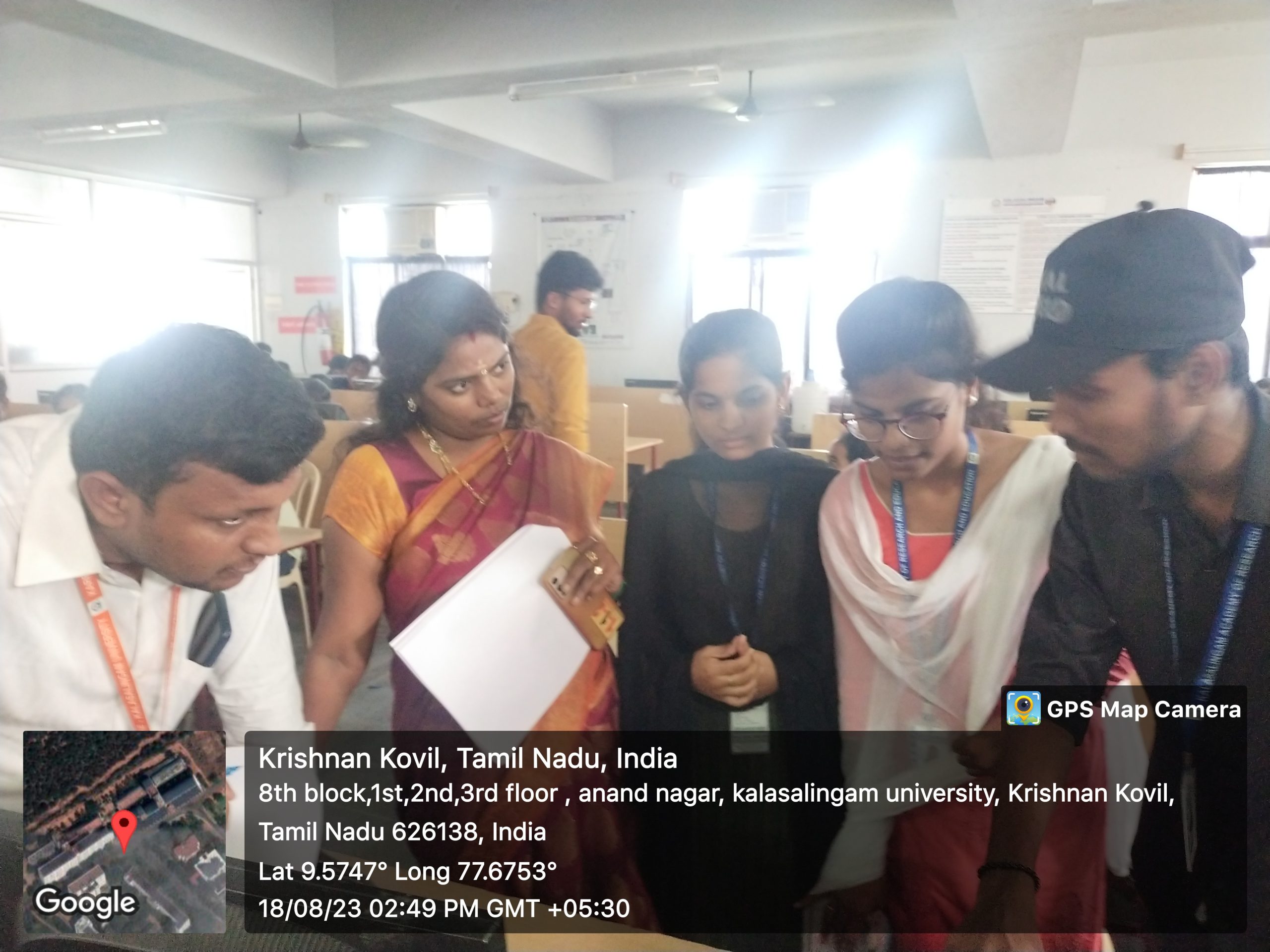
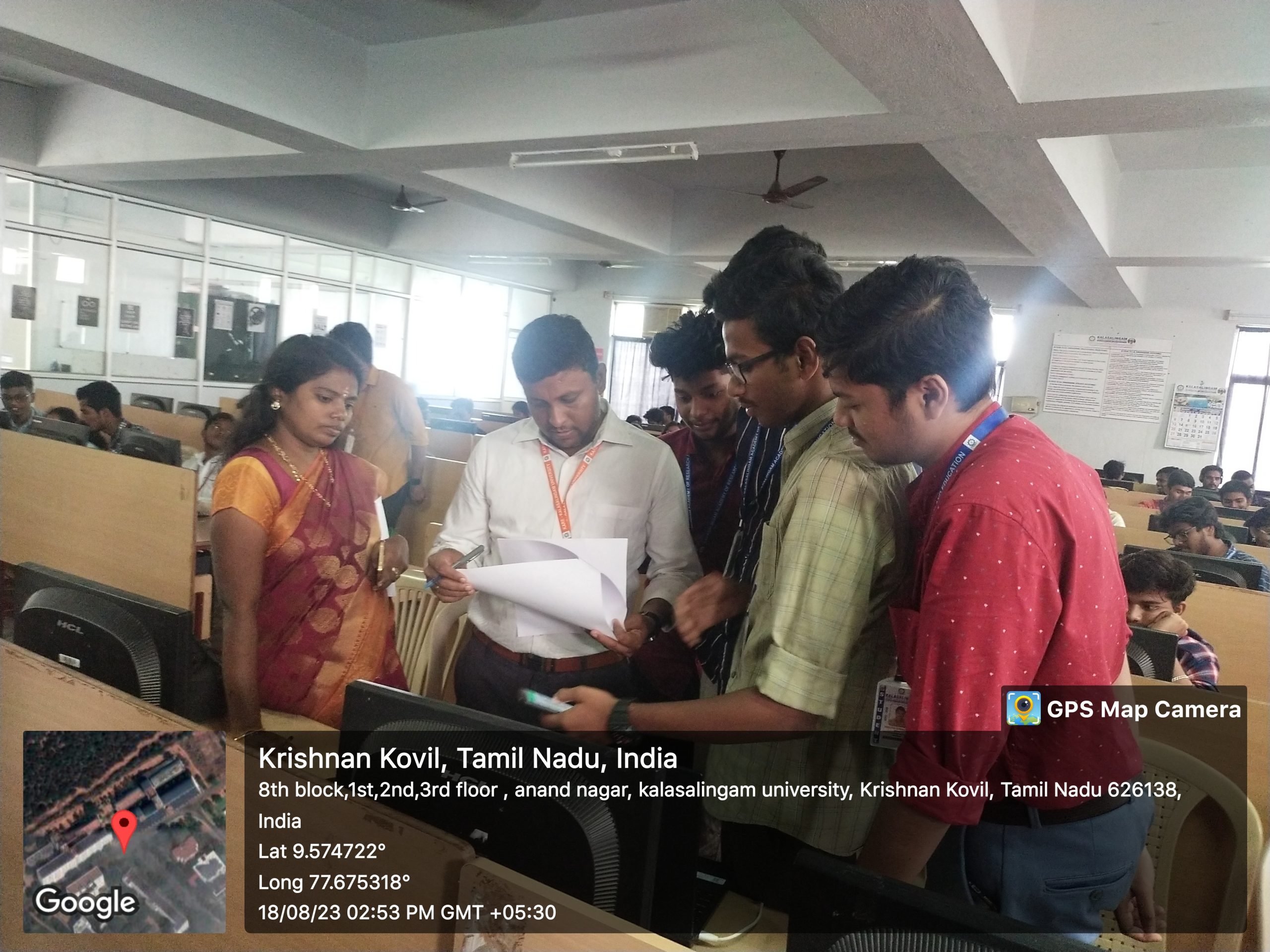
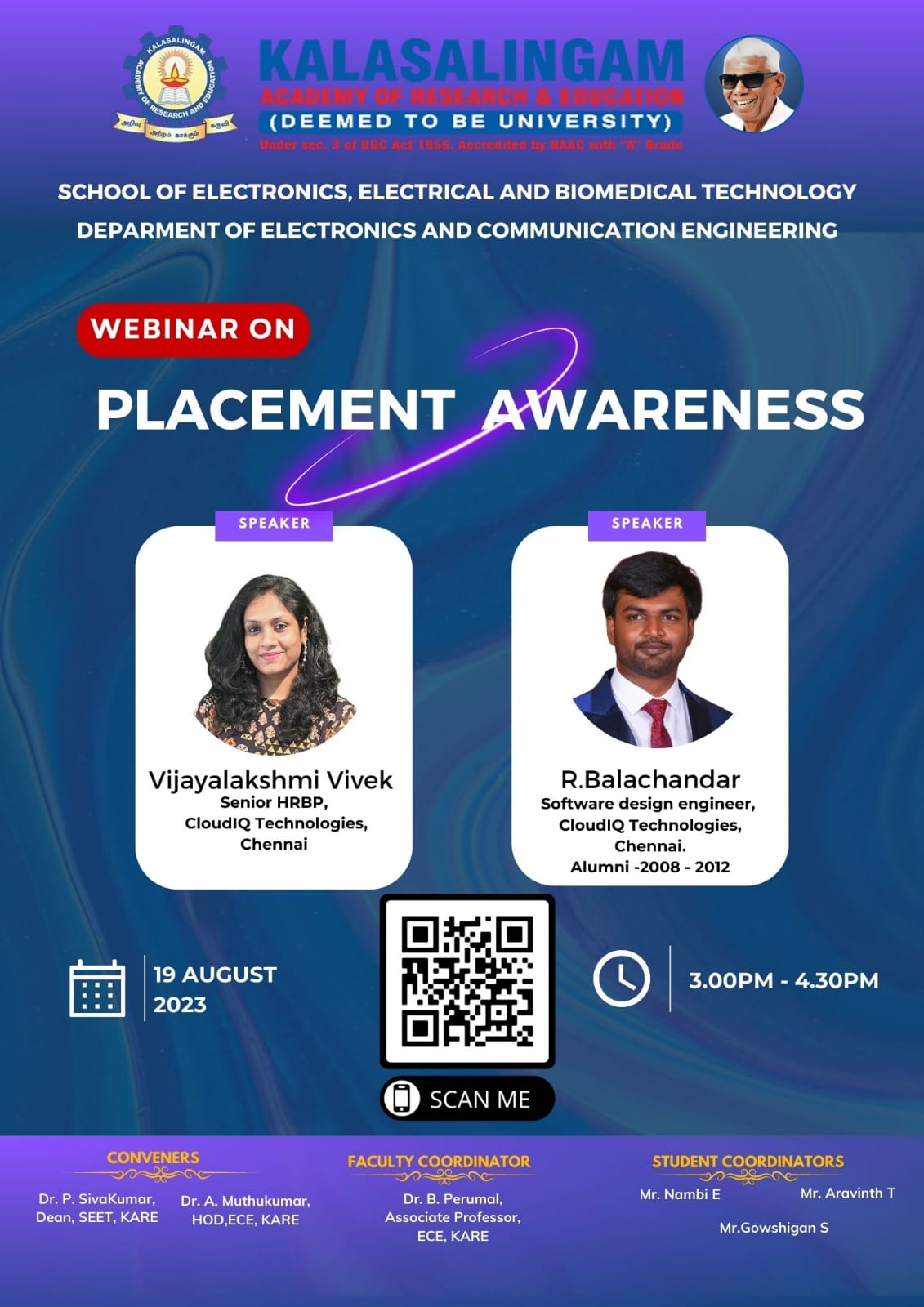
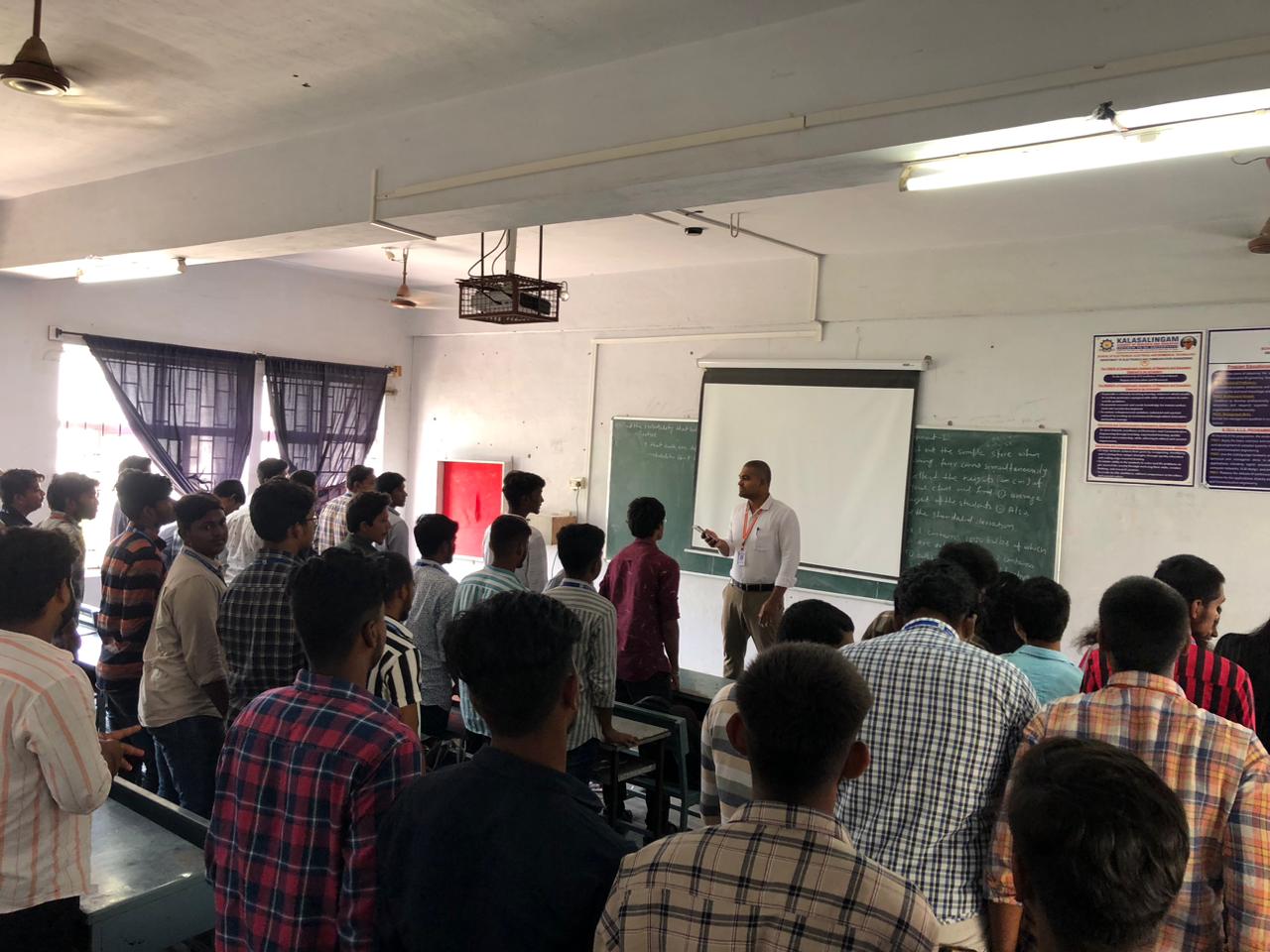
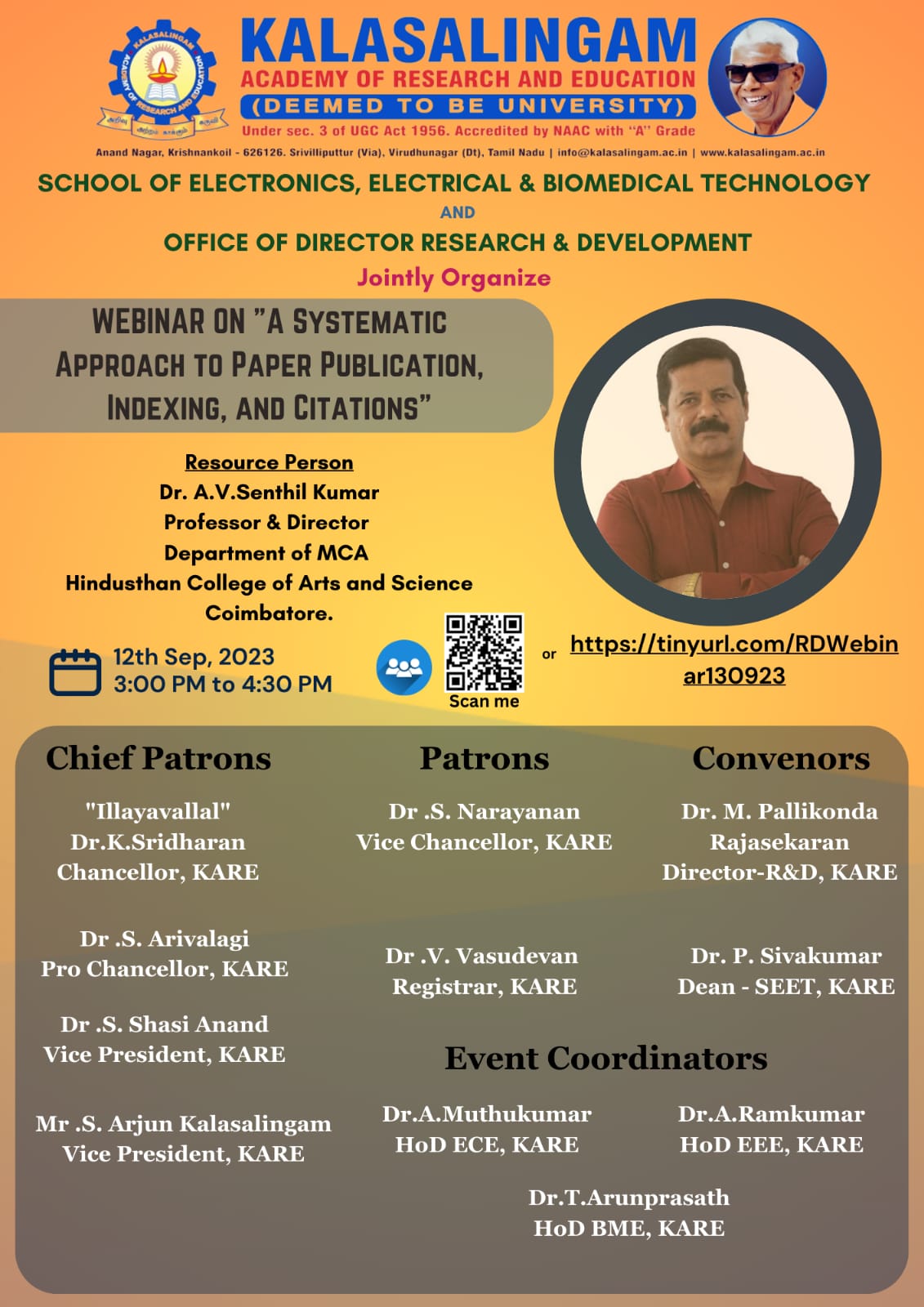
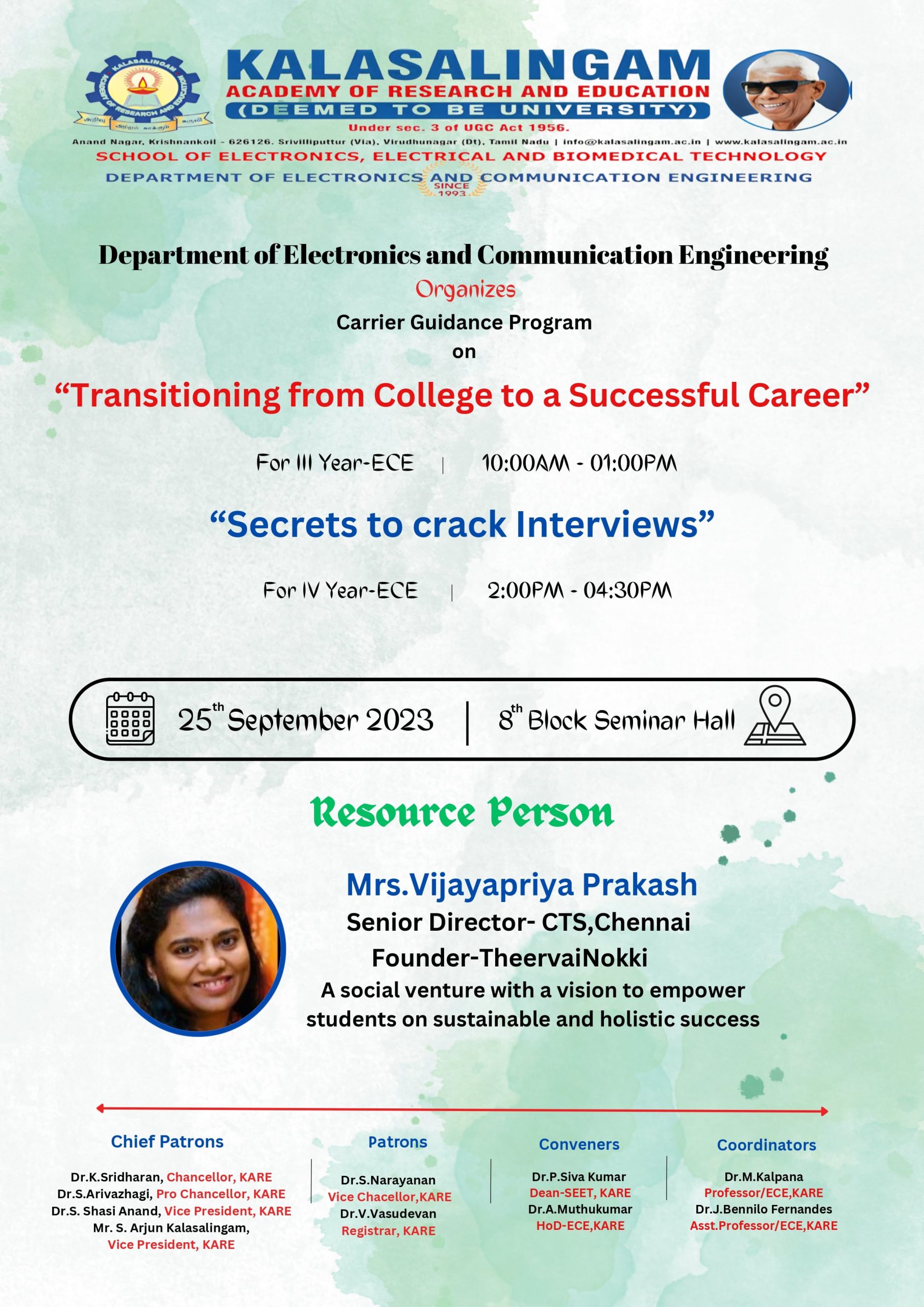
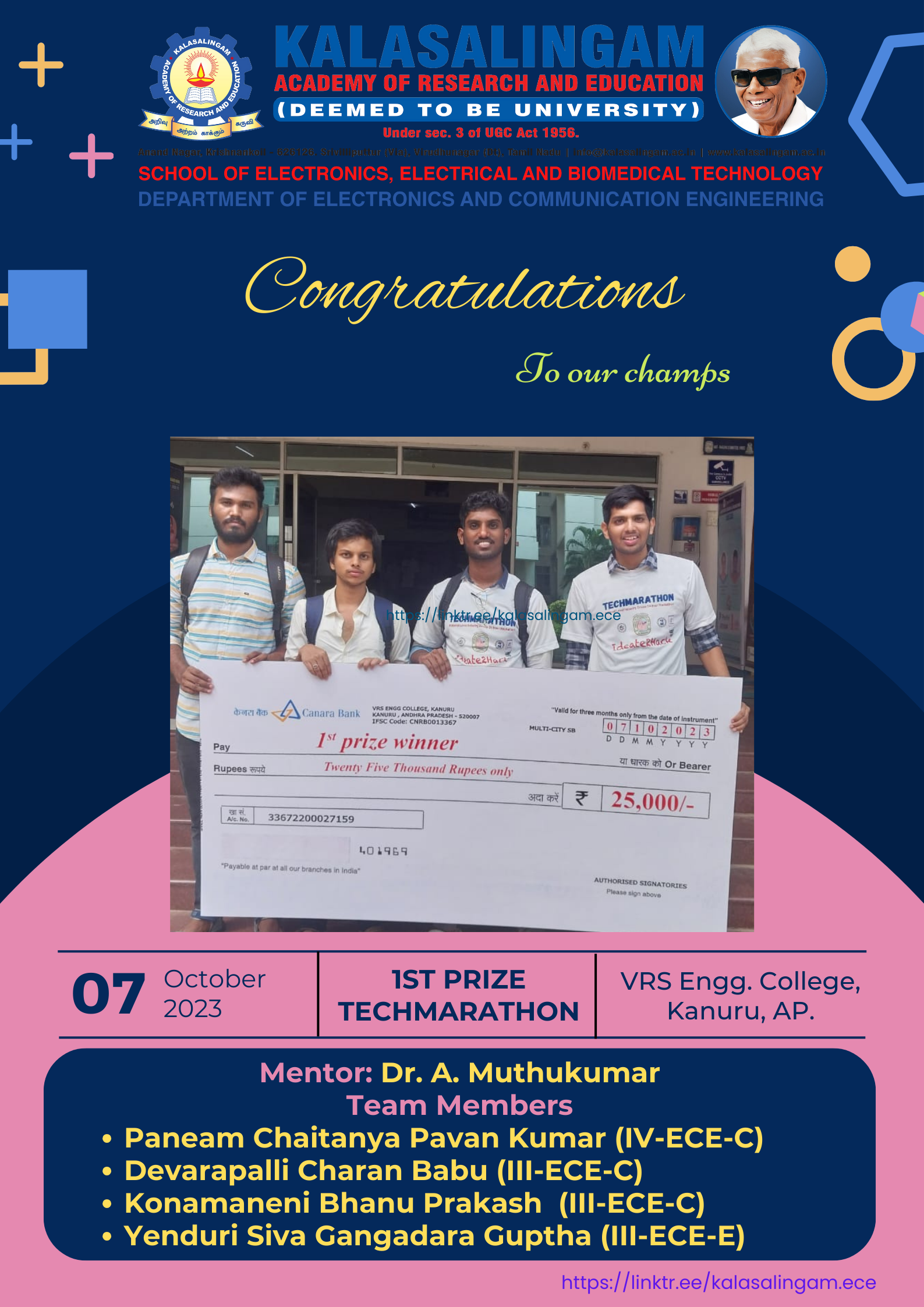
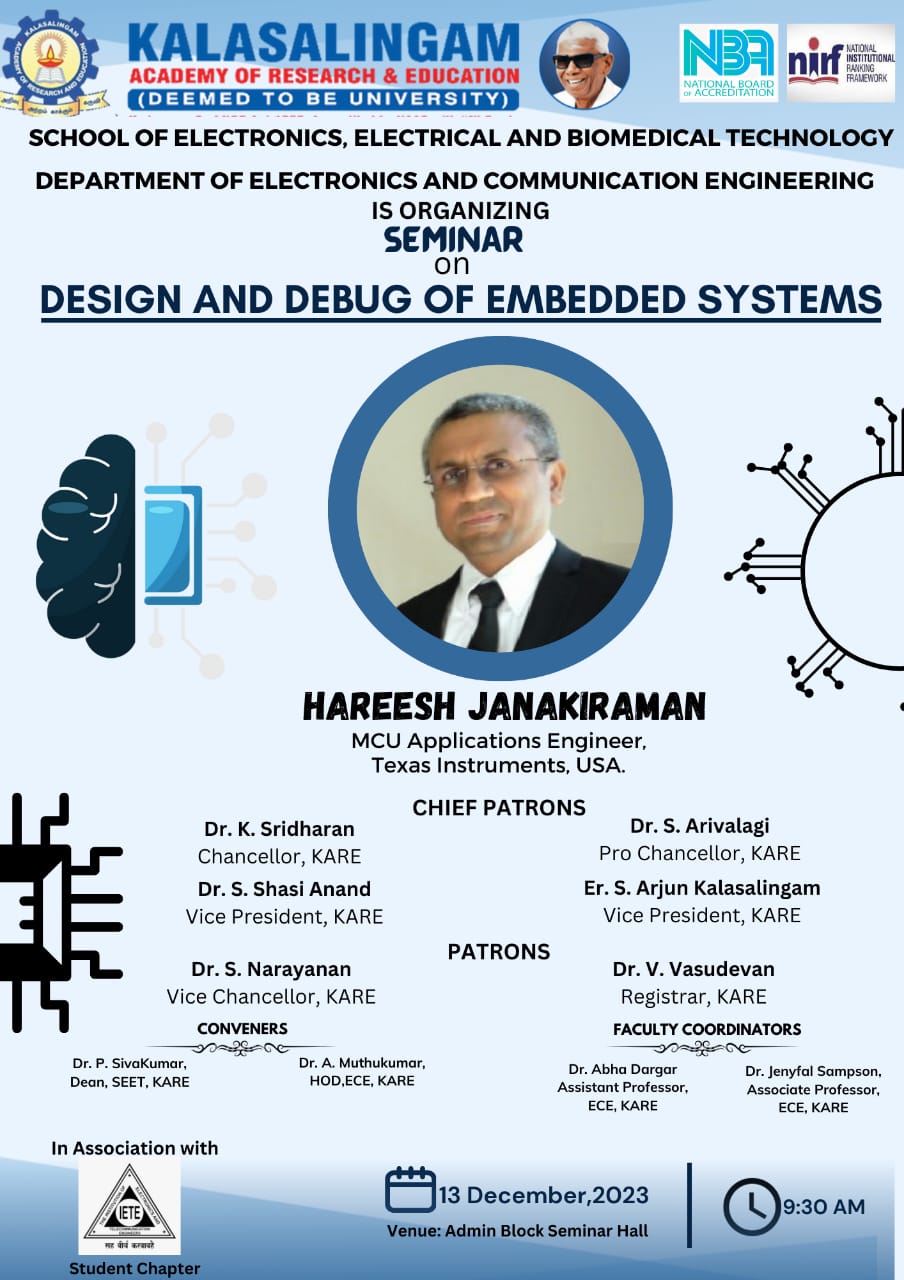
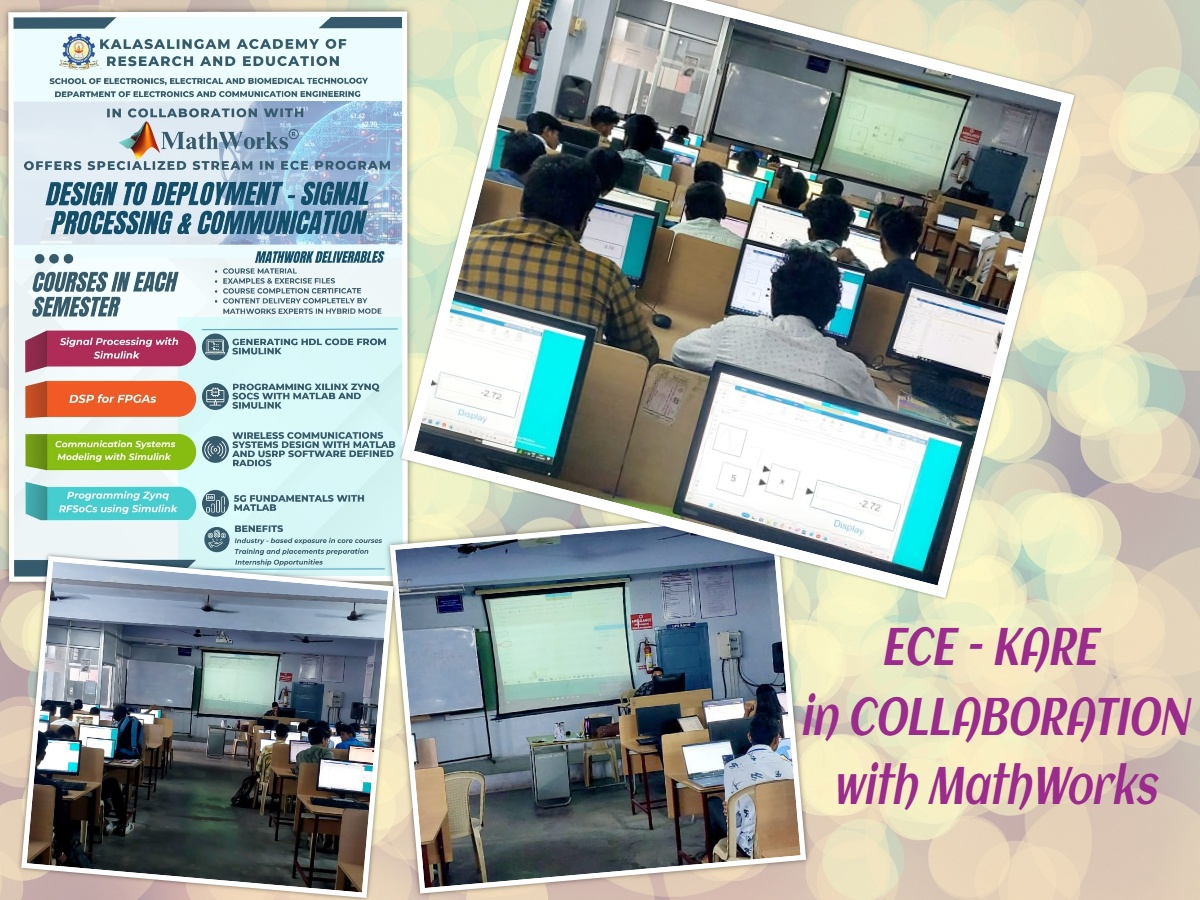
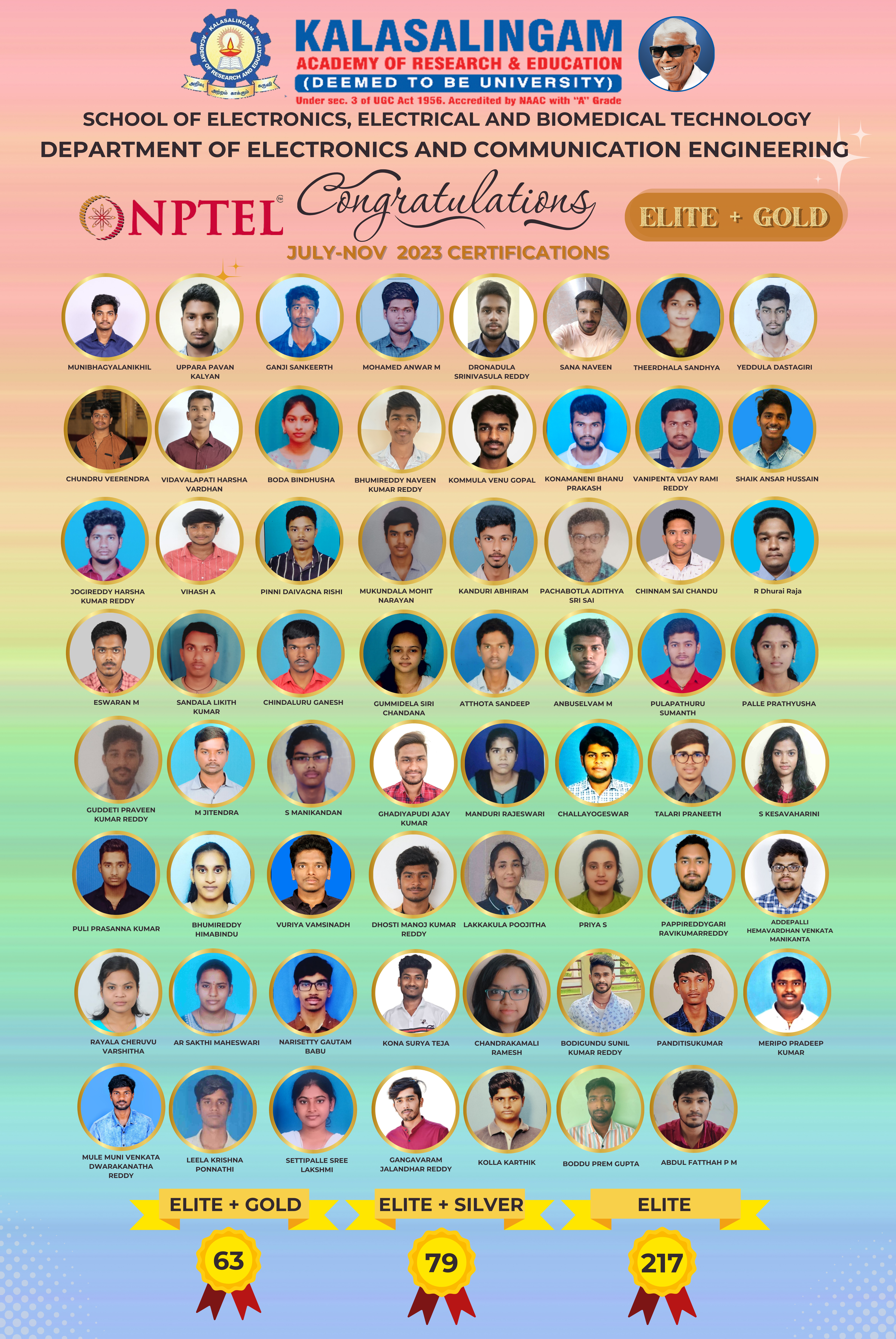
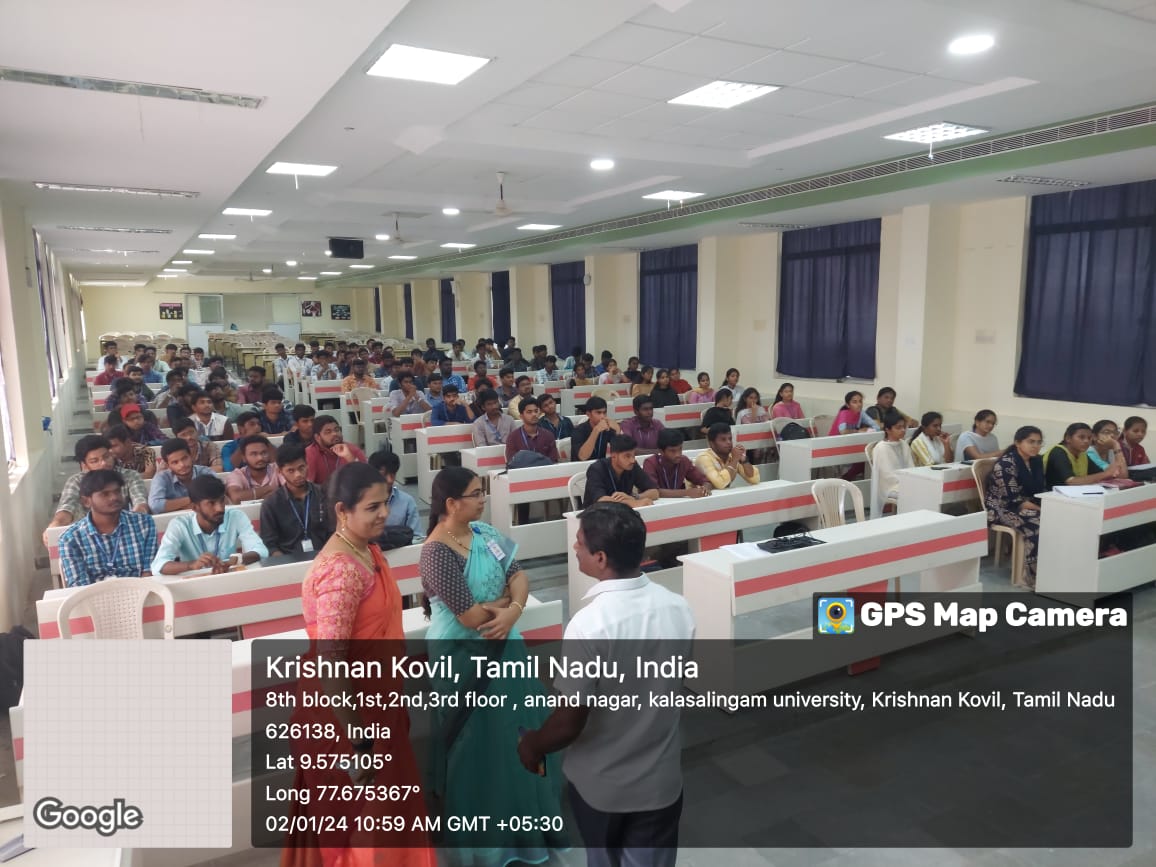
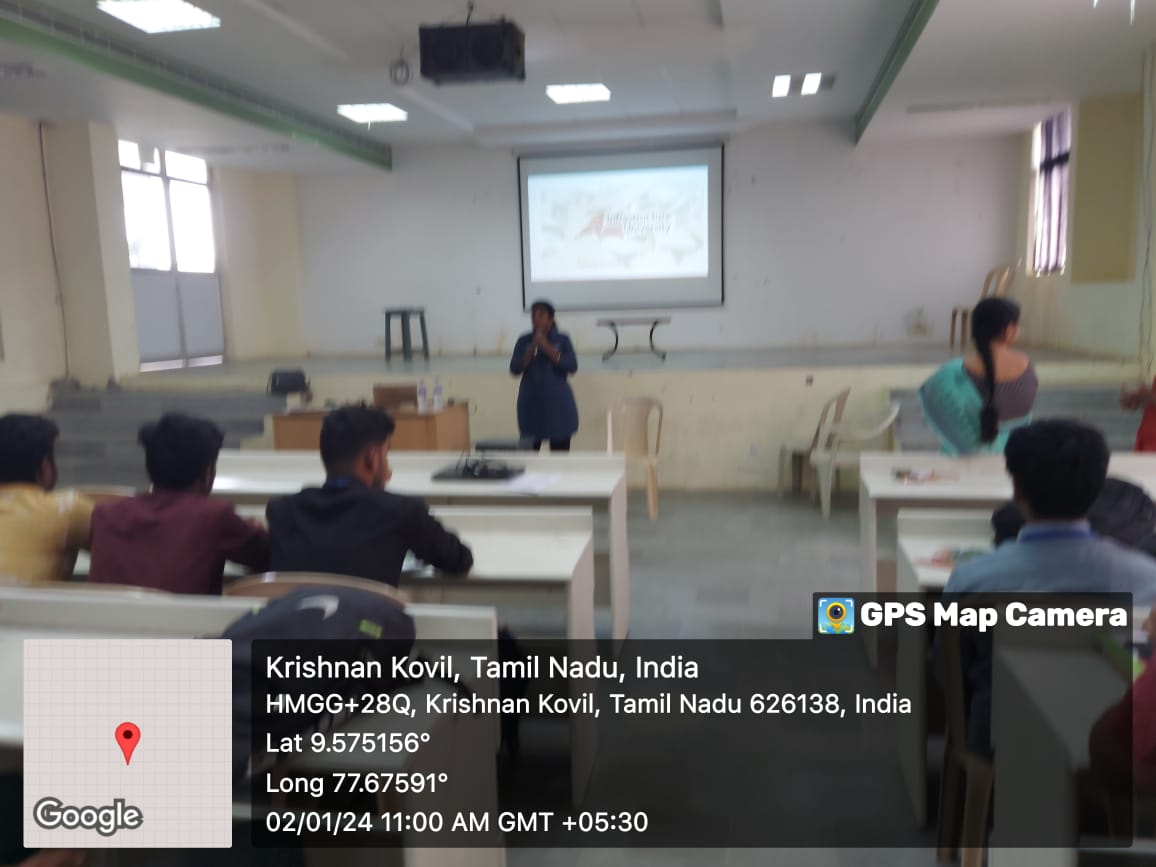
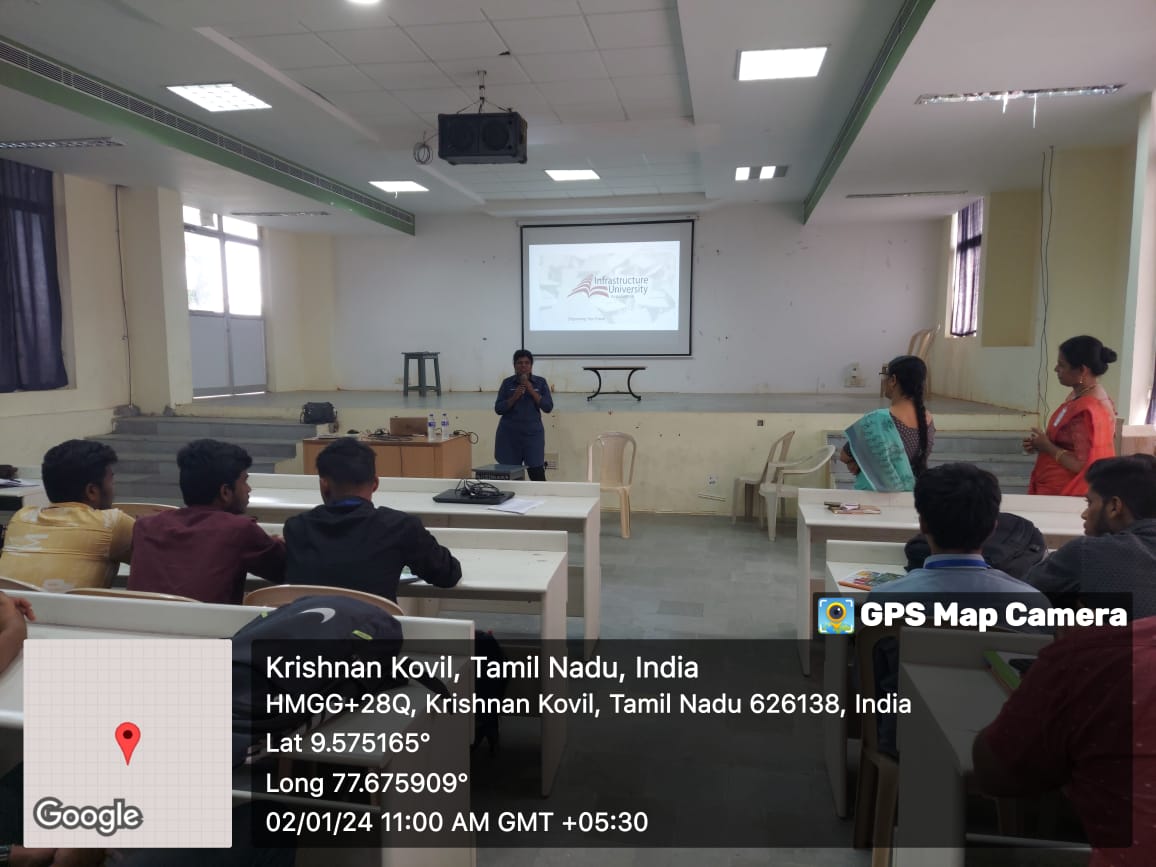
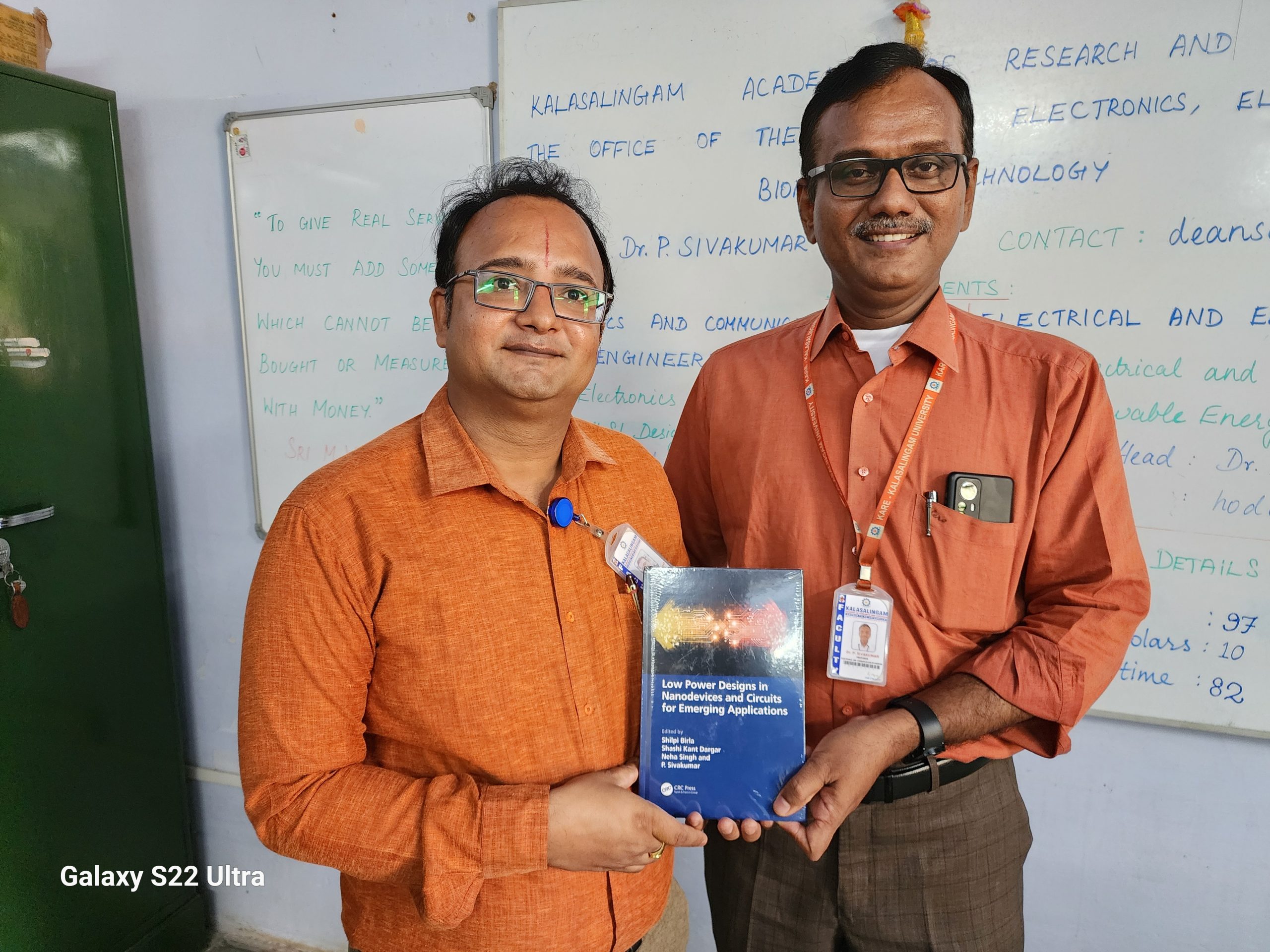
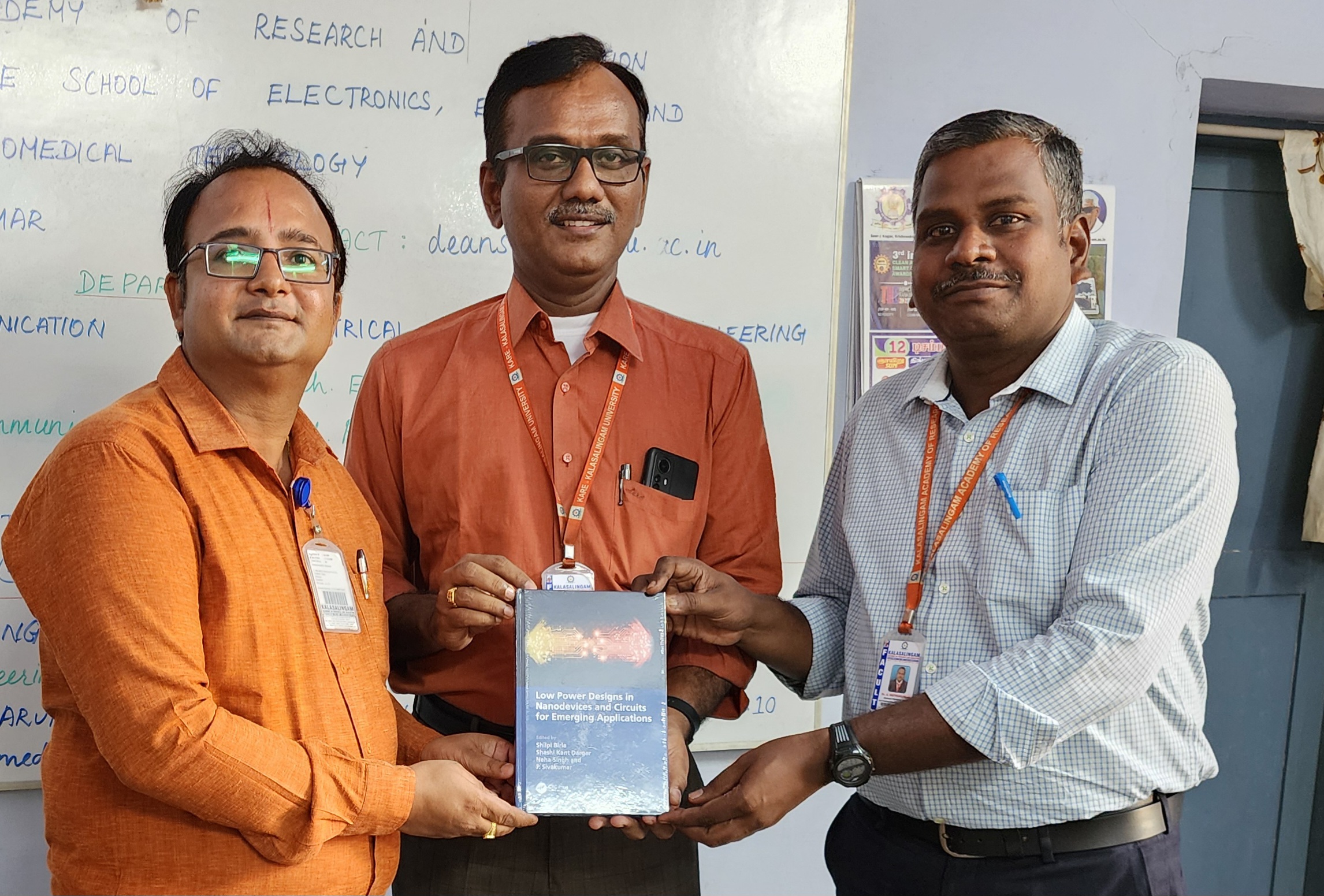
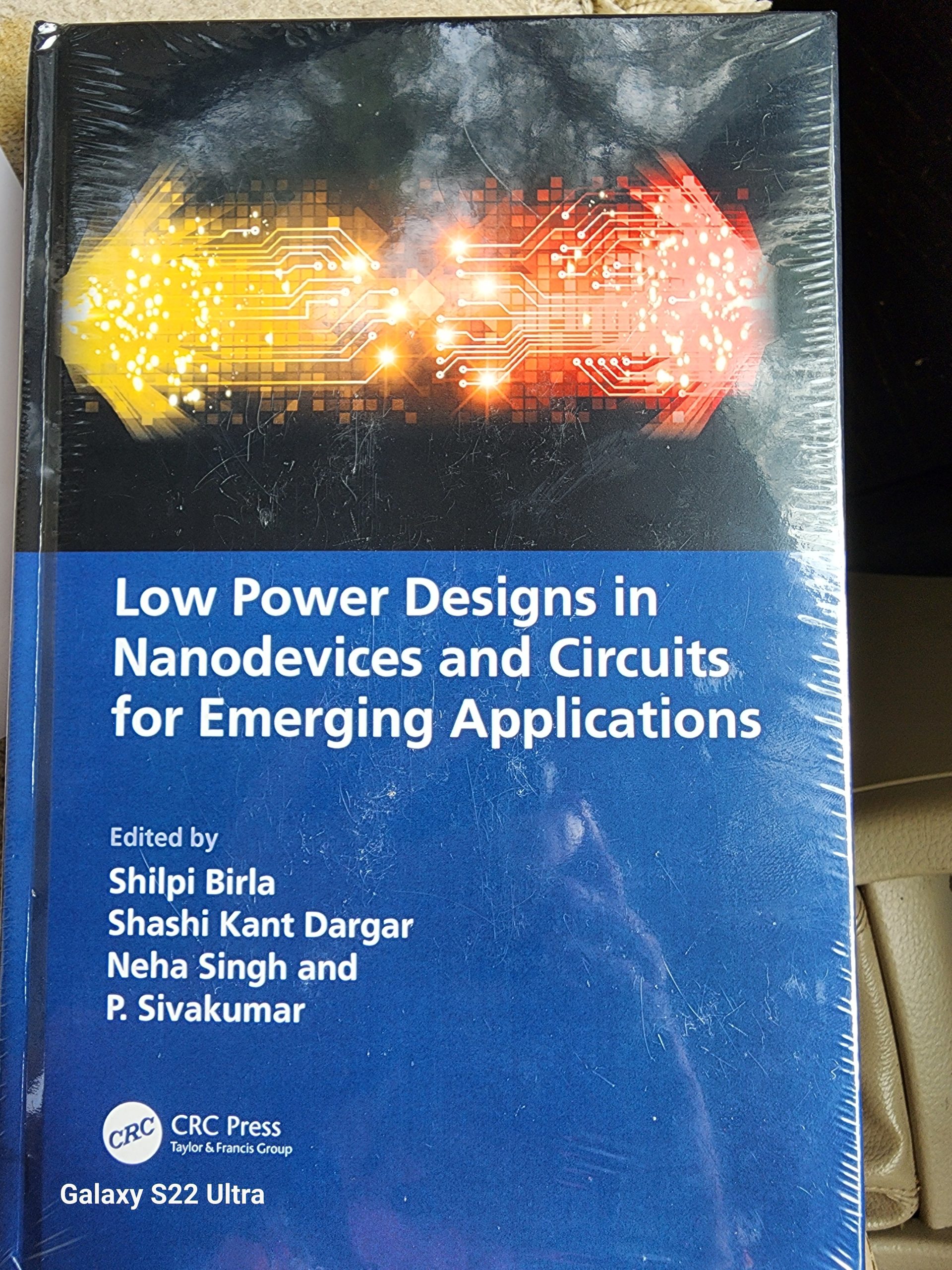
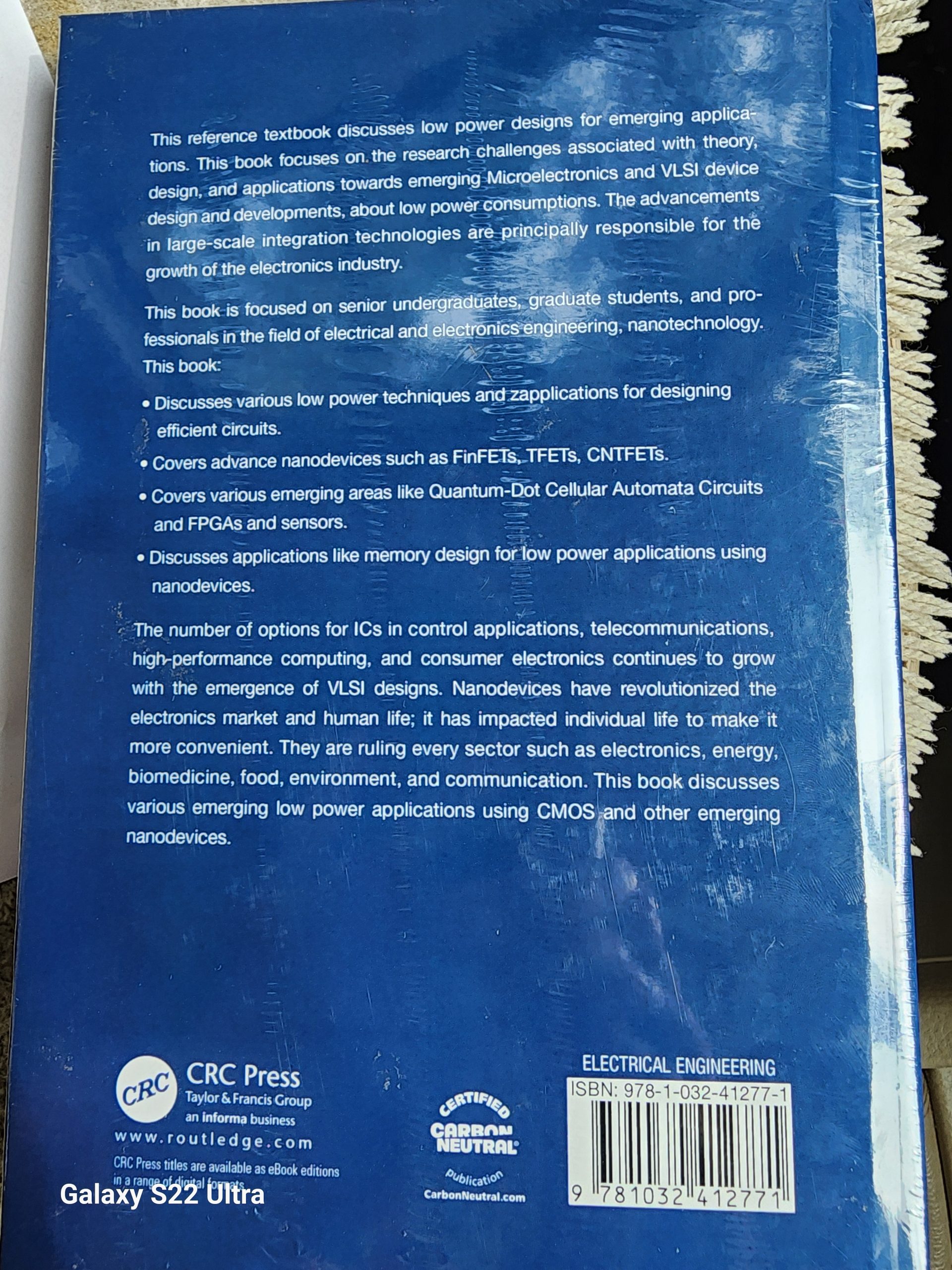

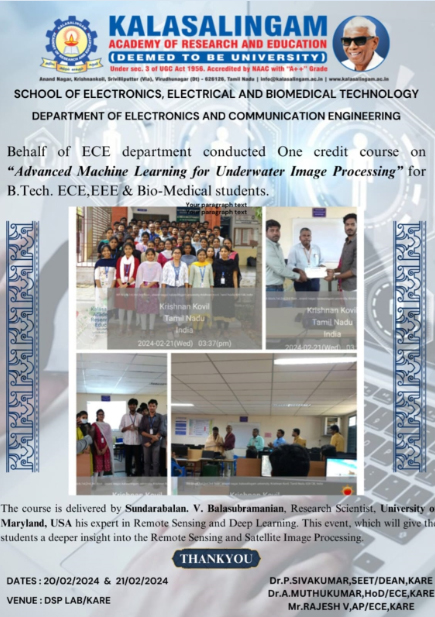
Organised by Department of Electronics and Communication Engineering, Kalasalingam Academy of Research and Education in association with Aadhyaa Skills Research and Development on 26th and 27th February 2024.
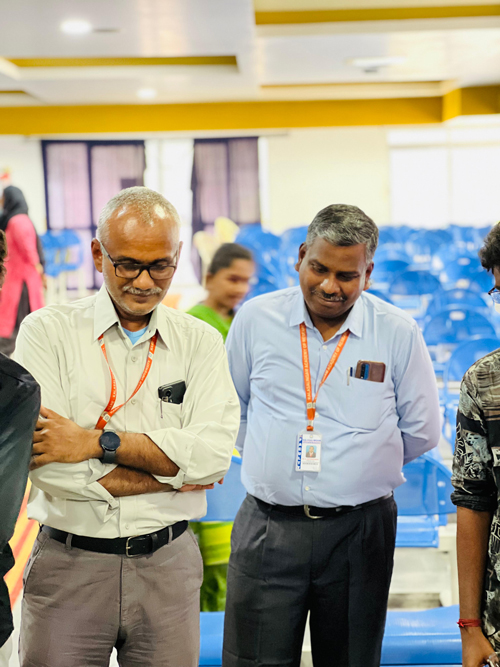
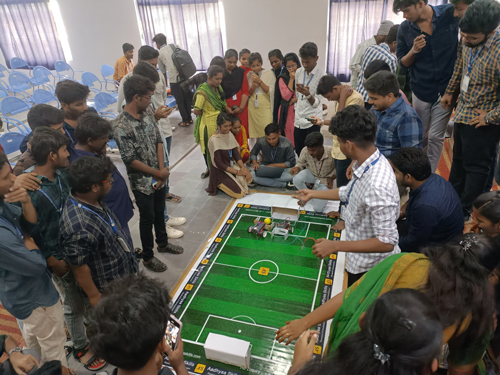
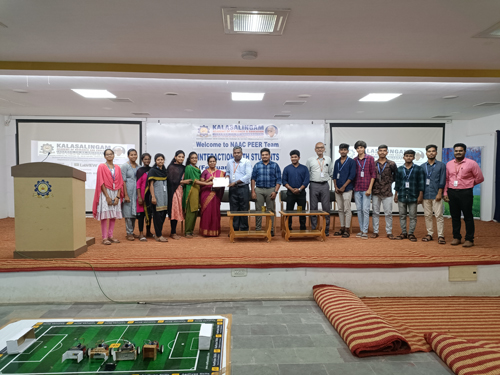
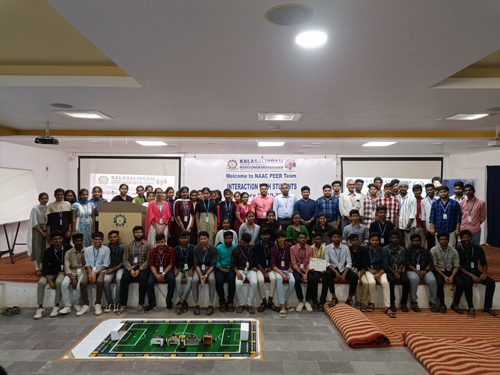
The Department of Electronics and Communication Engineering (ECE) at Kalasalingam Academy of Research and Education, Virudhunagar, India organized one-day extension / outreach activity, “TechIgnite: Igniting Curiosity with Fun in Electronics for School Students.” on 29th February 2024
This activity engaged and inspired the school students to be in love with the field of electronics. Through hands-on activities and interactive sessions, students had the opportunity to explore the fascinating world of electronics in a fun and engaging way. From building simple circuits to understanding the basics of communication systems, this activity was an enriching experience for all participants.
The students from the Government Schools of nearby locations were the attendee of the event. The event was coordinated by Dr. Joesephine Selle J., Dr. Perumal B., Dr. Charles Praveen J, the faculty of the ECE Department.
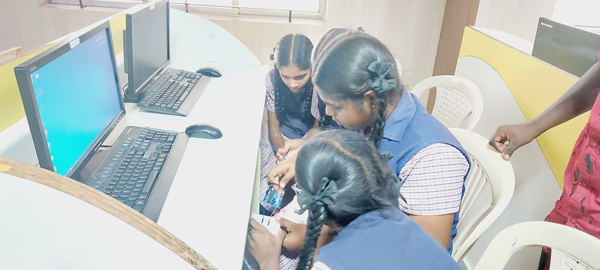
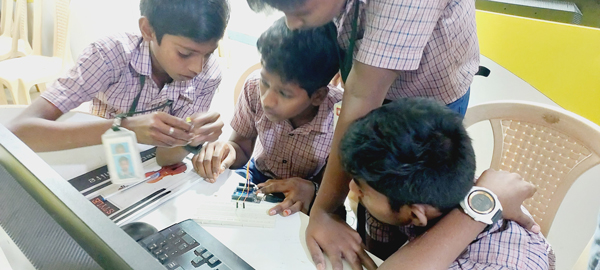
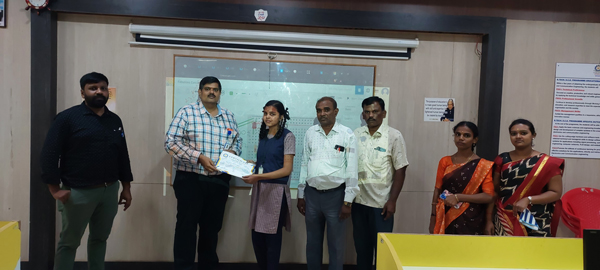
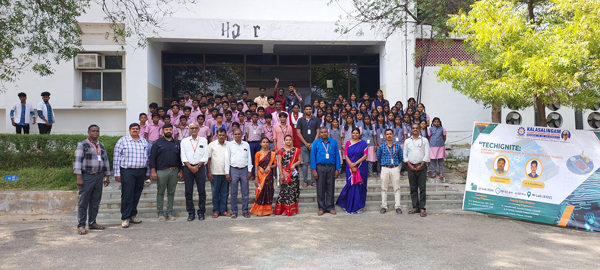
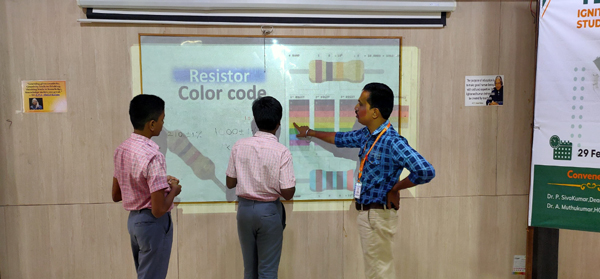
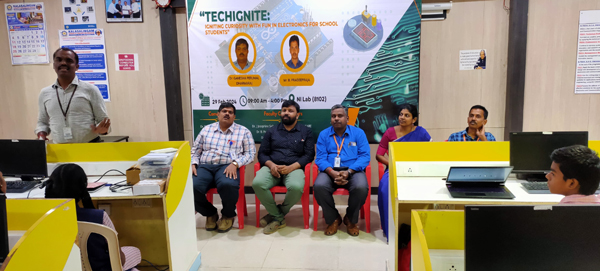
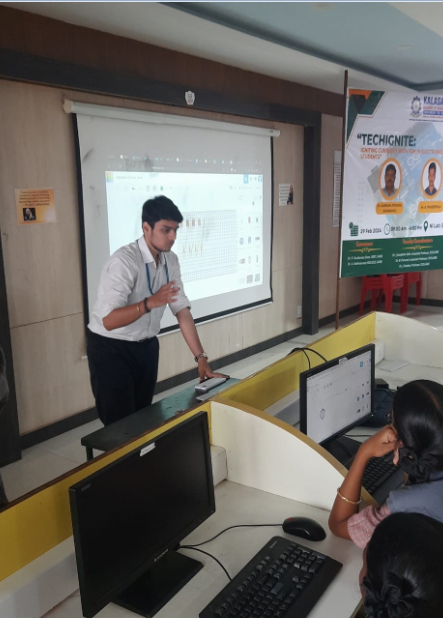
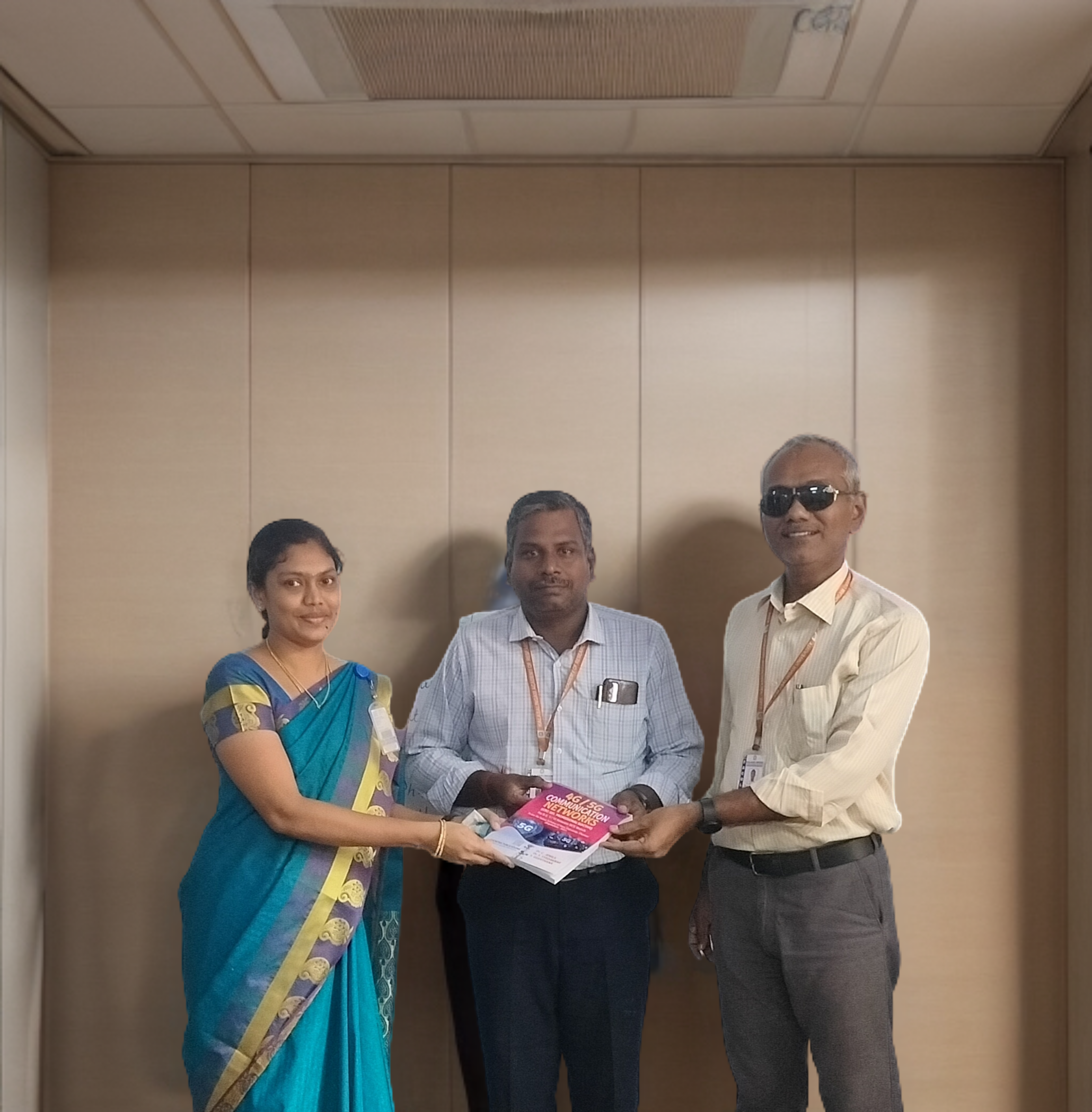
The Fourth and Third year students won the First prize in “SYMBIOT’ 24”, a technical competition conducted by the Vidyavardhaka College of Engineering, Mysuru, India, for their project titled “Stochastic Augmented Prolog Processing Helical Interface Robust Equipment ” on 17-18 May 2024.

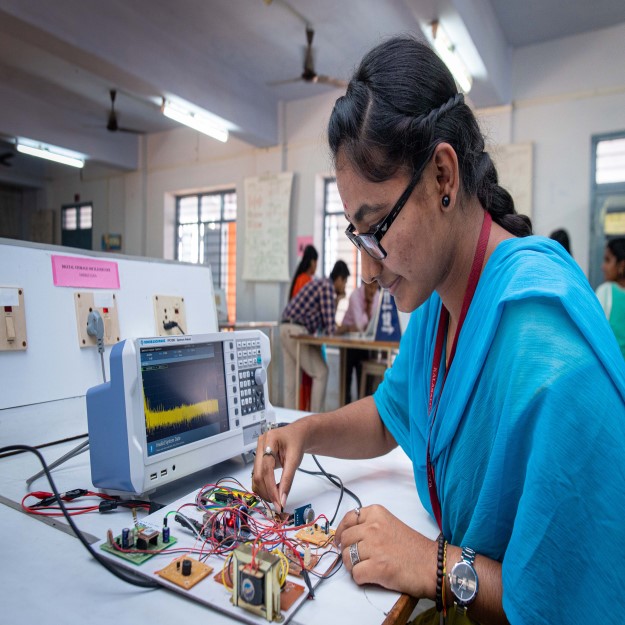
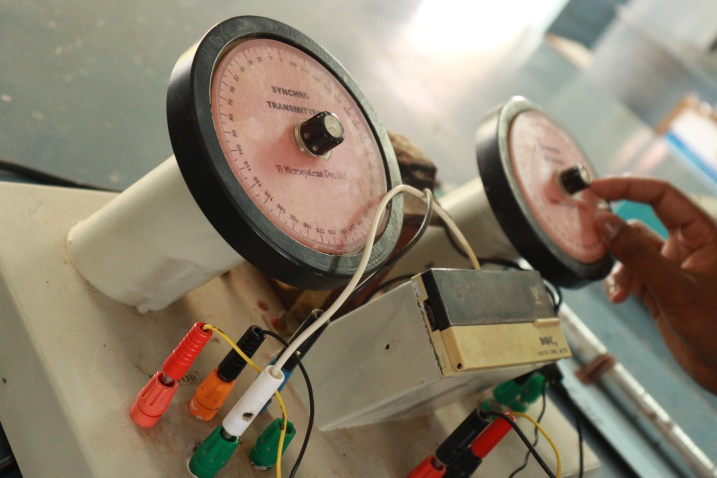
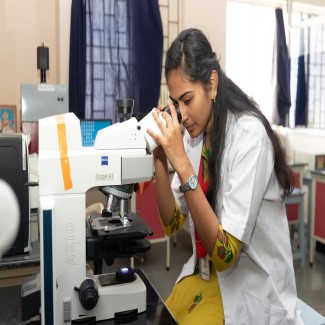
The students managed to develop 10 innovative products in 5 years. They have also got 23 patents and 55 publications under their name. The students have done wonders in the field of extracurricular activities apart from academics. The students took part in many National and International Events” and bagged lots of medals. The students at the Electronics and Communication Engineering Department are offered a One Credit Course from the Industry People and International Professors. The department invites resource persons from industries and abroad to handle value added courses in order to raise awareness and bring industrial skills to our students (15hours).
Panem chaitanya pavan kumar/ECE received the Best Innovation award in the IIC regional meet at FX Engineering College, Tirunelveli.
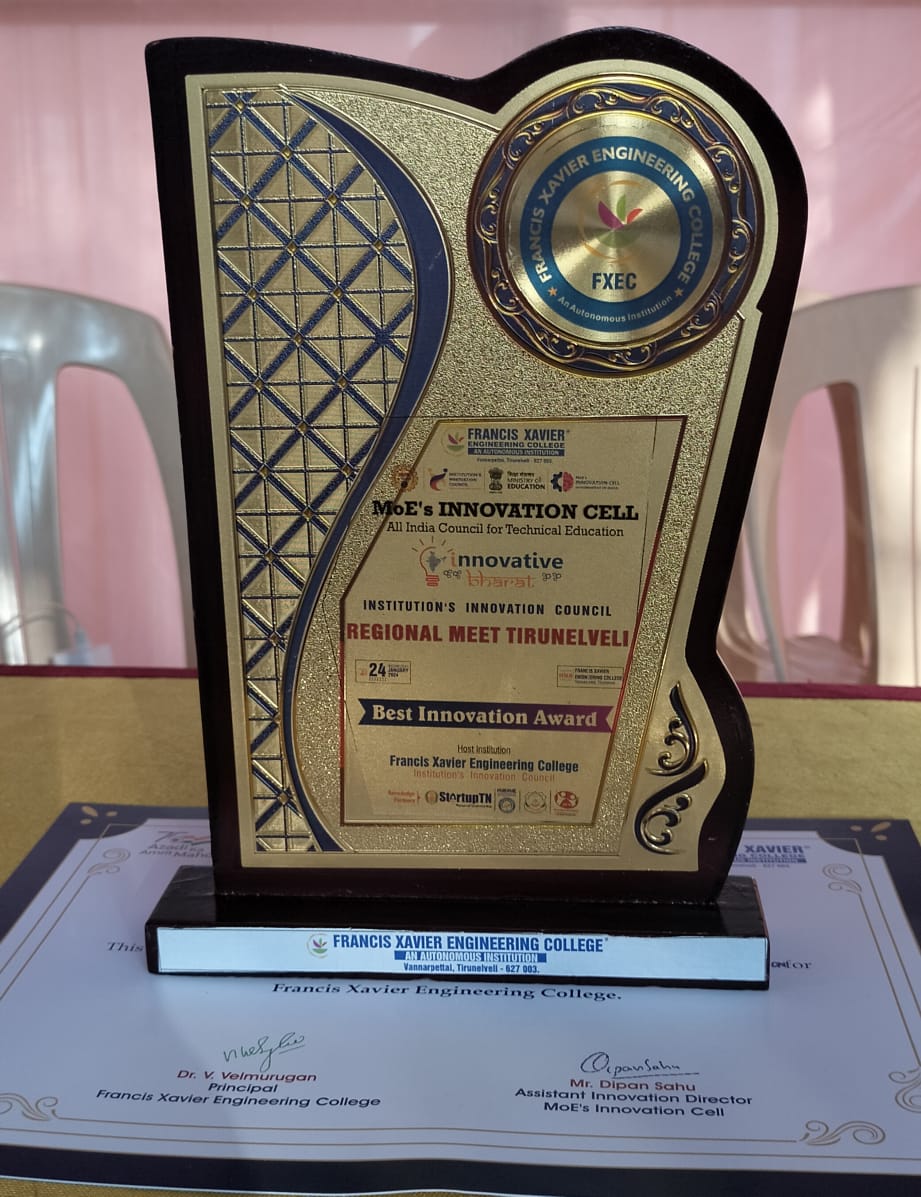
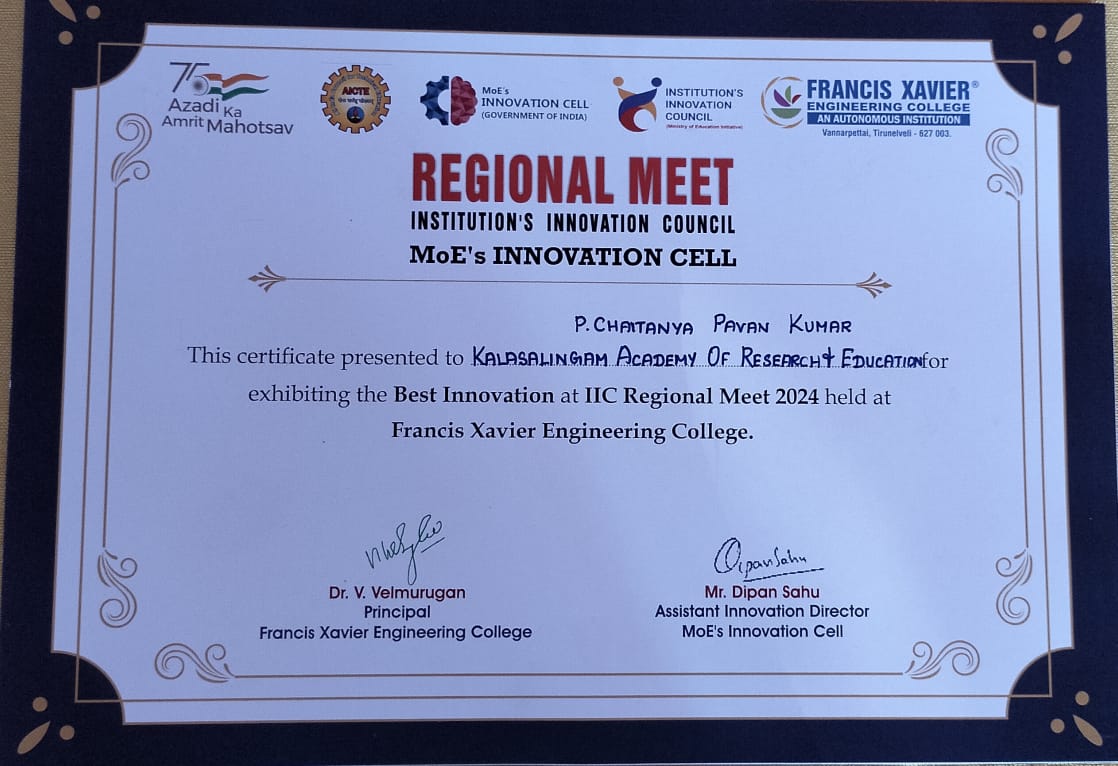
Kommula Venu Gopal (Student of 2021-25 Batch B.Tech. Electronics and Communication Engineering at Kalasalingam Academy of Research and Education, Tamilnadu, India) and his team received 2nd prize (₹20000) for their project titled “An Affordable Semi-Automated Food Feeding System for Disabled People” in the 3 IDIOTS National Level project competition organized by Vellammal College of Engineering, Madurai held on 31st January 2024.
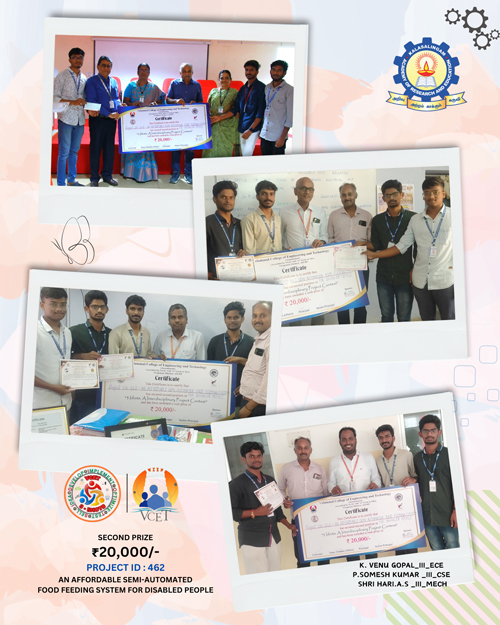
The fourth year students of B.Tech. ECE bagged the first prize in the EPITOME ’24-a hackathon conducted by the Skill Development Committee of Gokaraju Rangaraju Institute of Engineering and Technology, Hyderabad on 1st and 2nd March 2024.
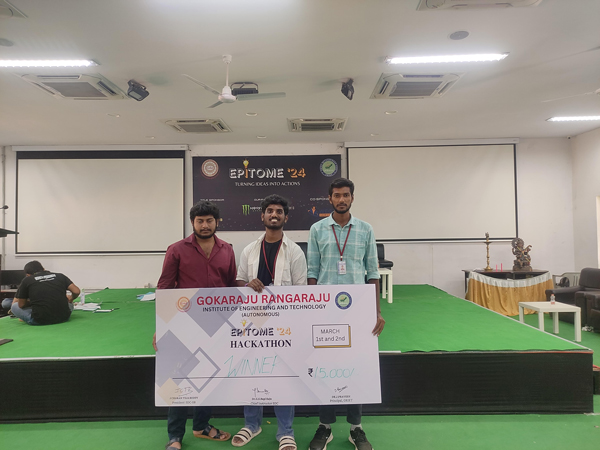



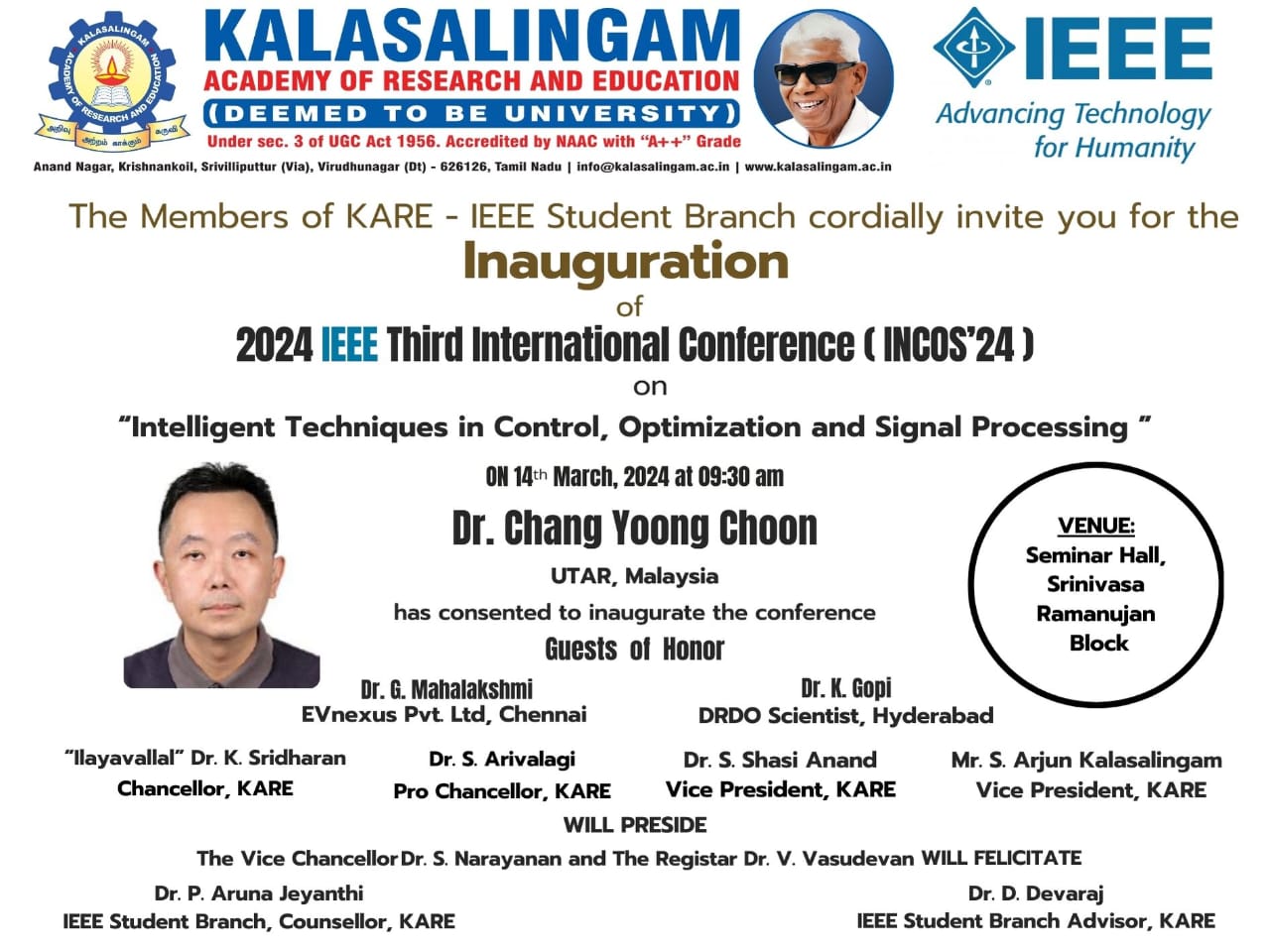
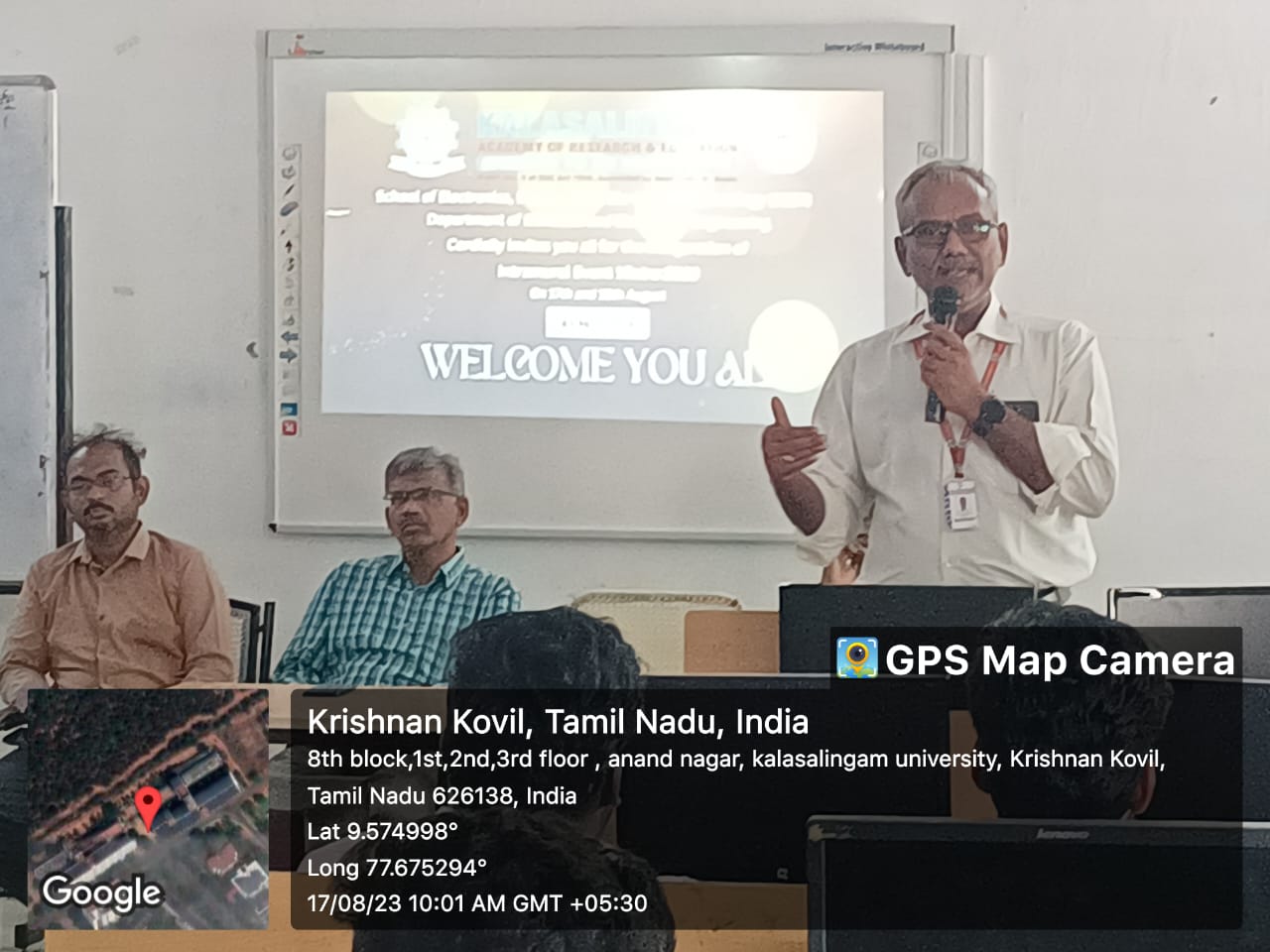
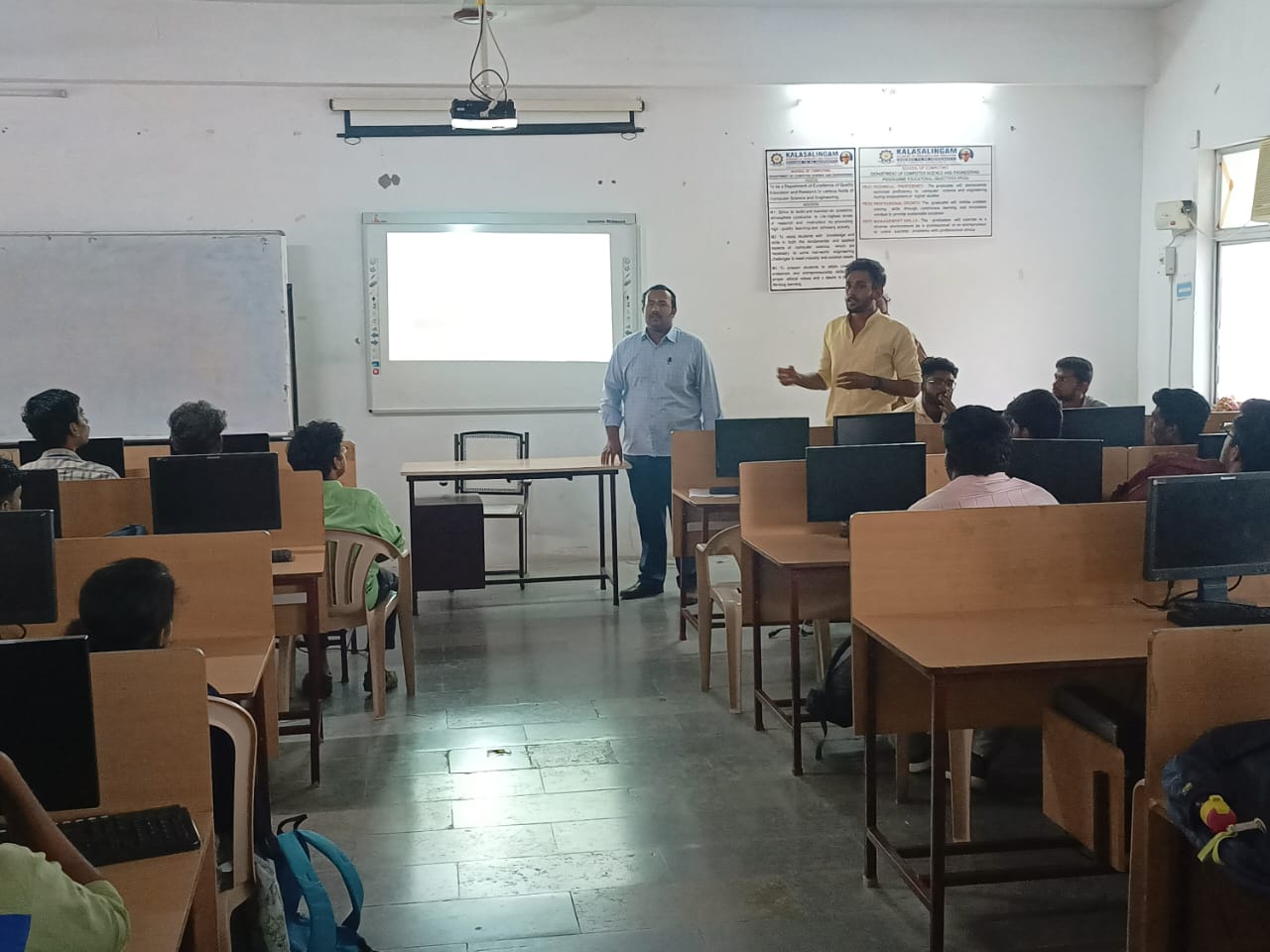
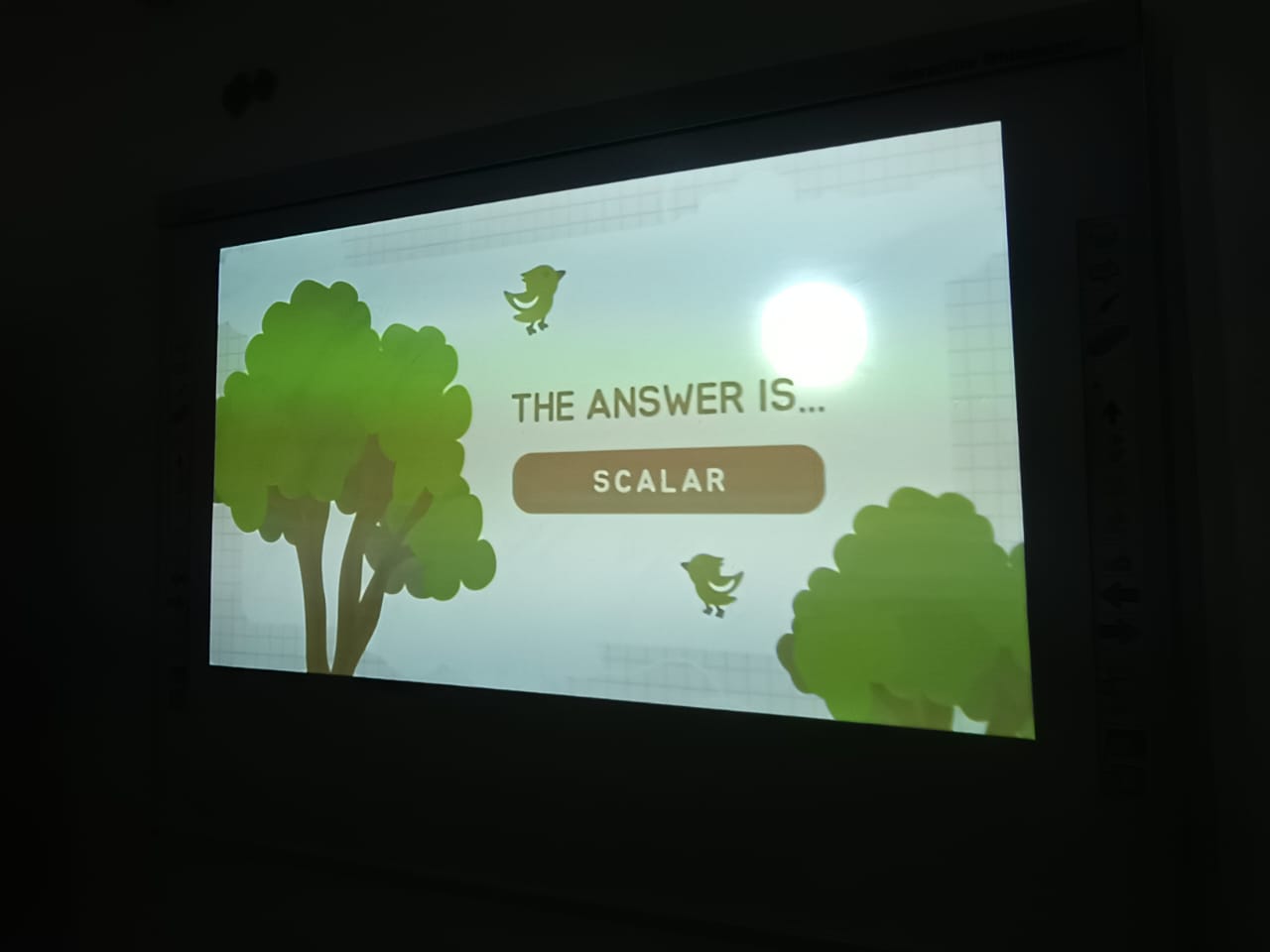
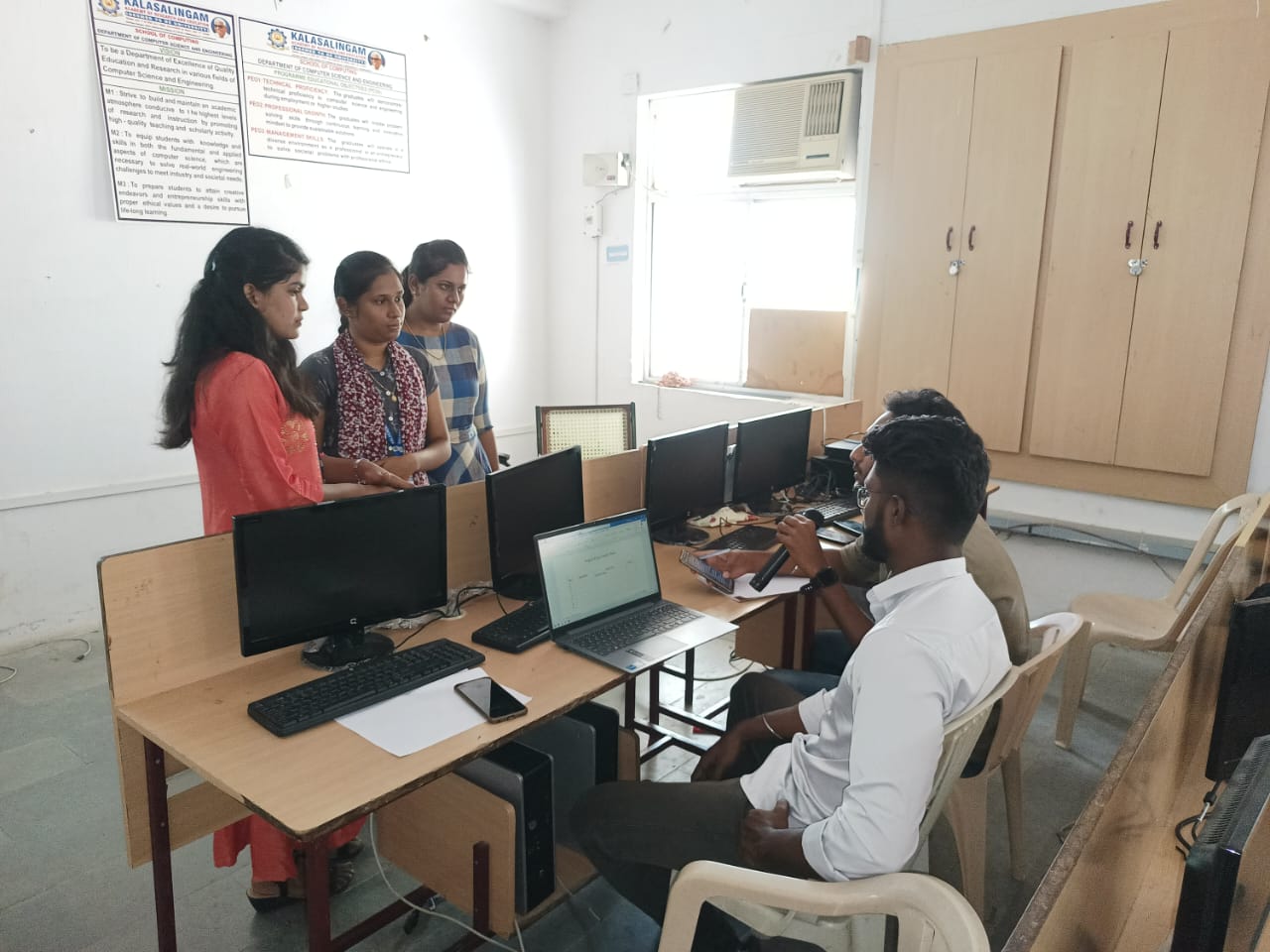
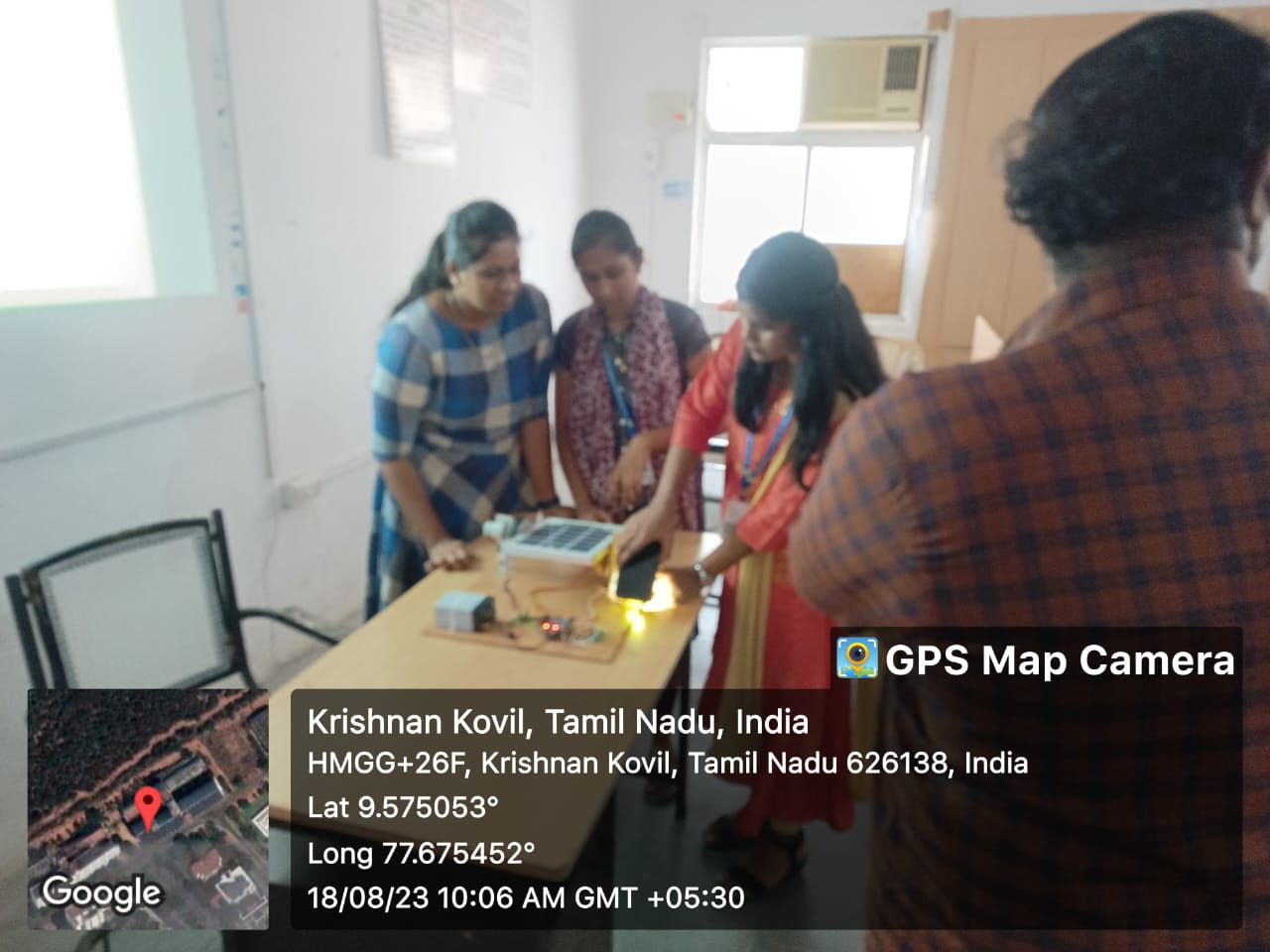
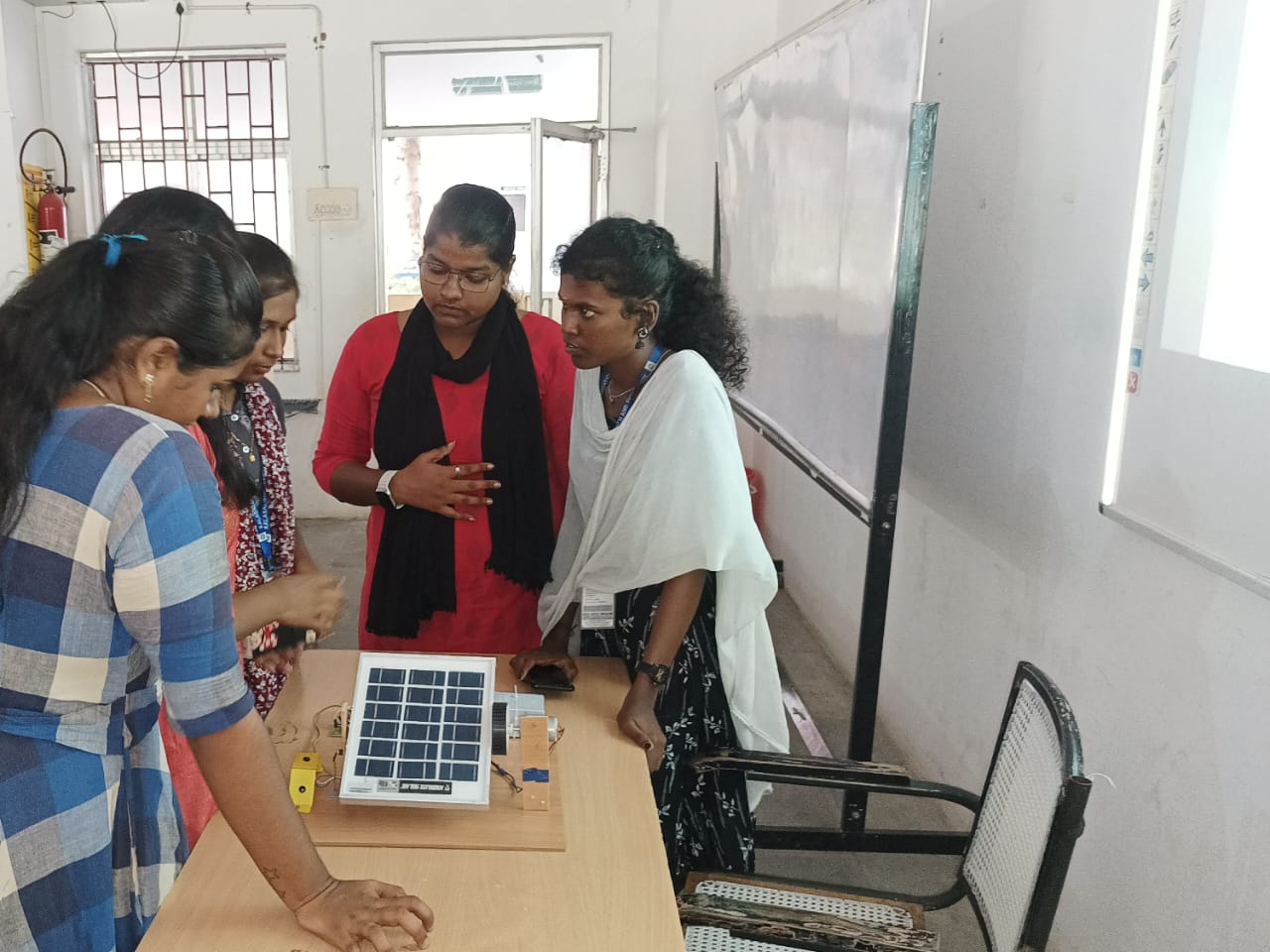
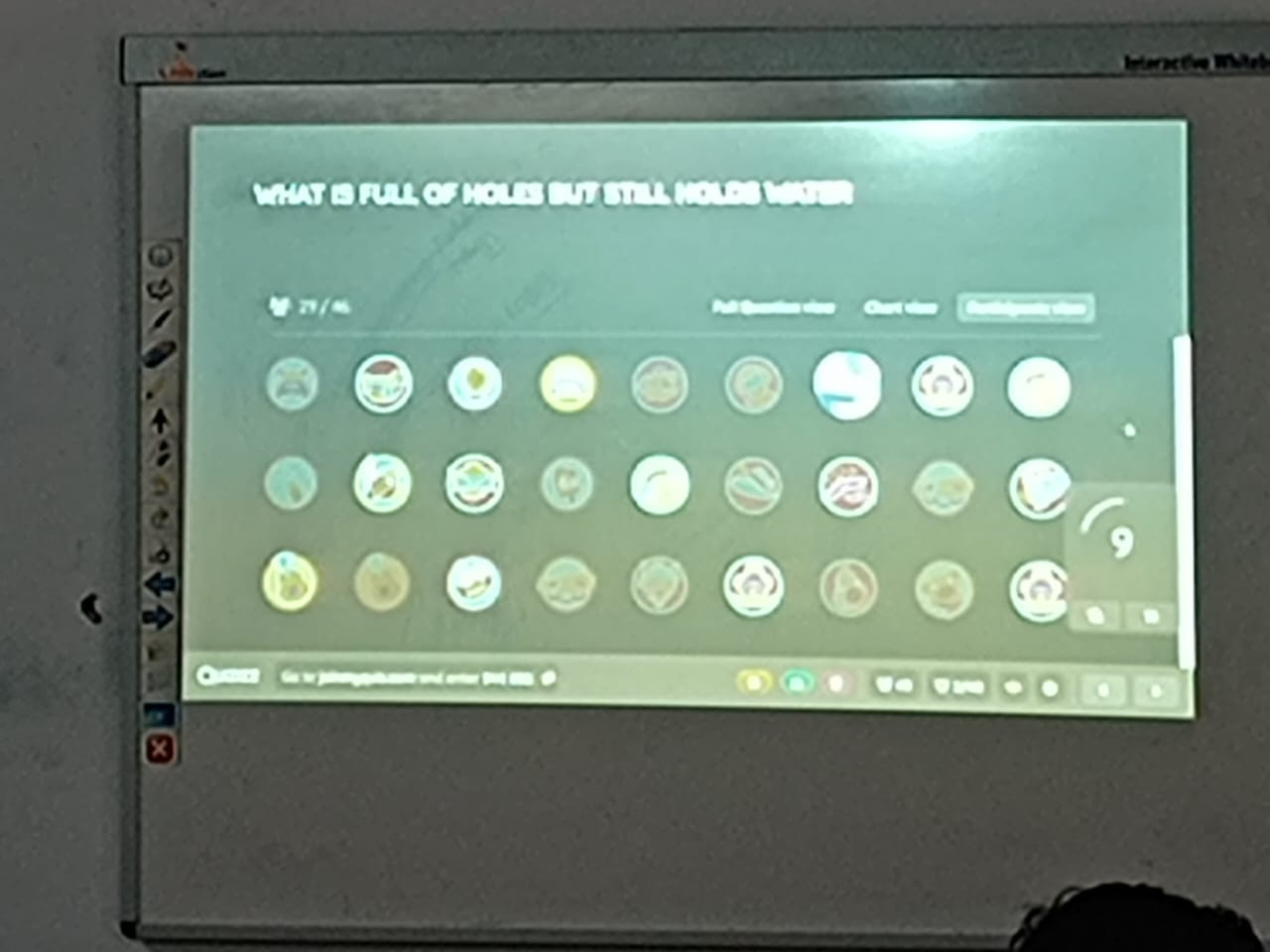
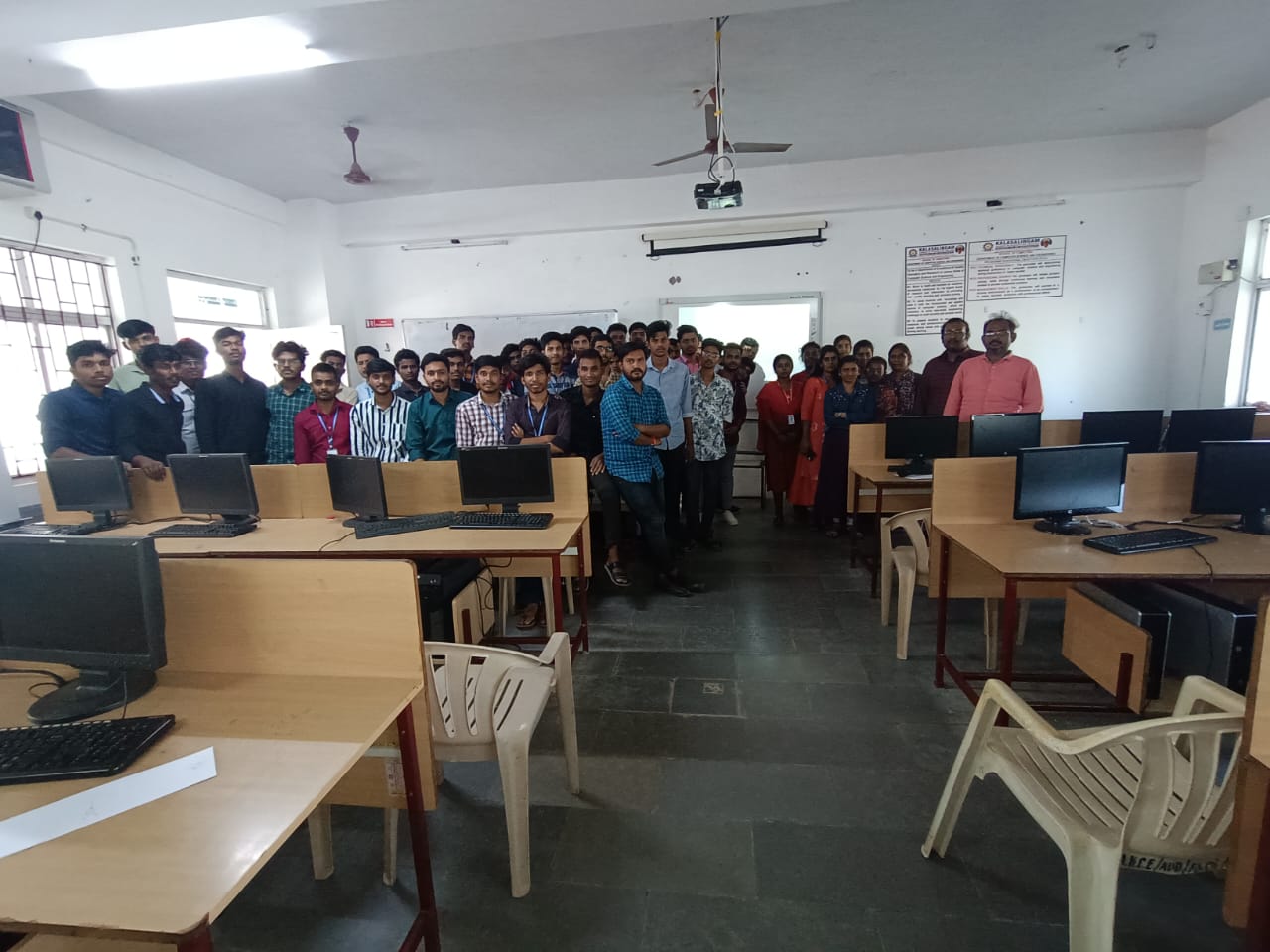
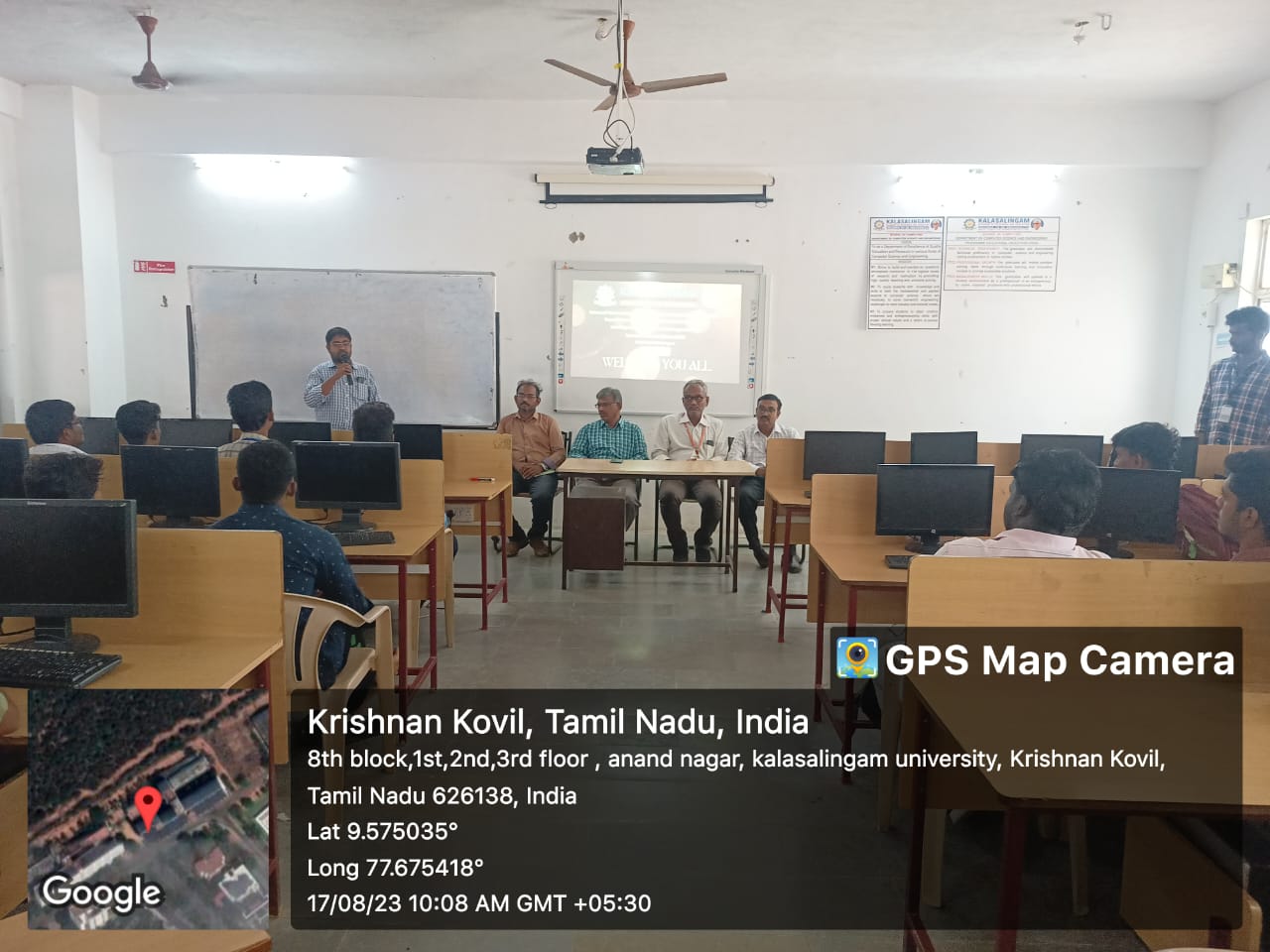



The students managed to develop 10 innovative products in 5 years. They have also got 23 patents and 55 publications under their name. The students have done wonders in the field of extracurricular activities apart from academics. The students took part in many National and International Events” and bagged lots of medals. The students at the Electronics and Communication Engineering Department are offered a One Credit Course from the Industry People and International Professors. The department invites resource persons from industries and abroad to handle value added courses in order to raise awareness and bring industrial skills to our students (15hours).





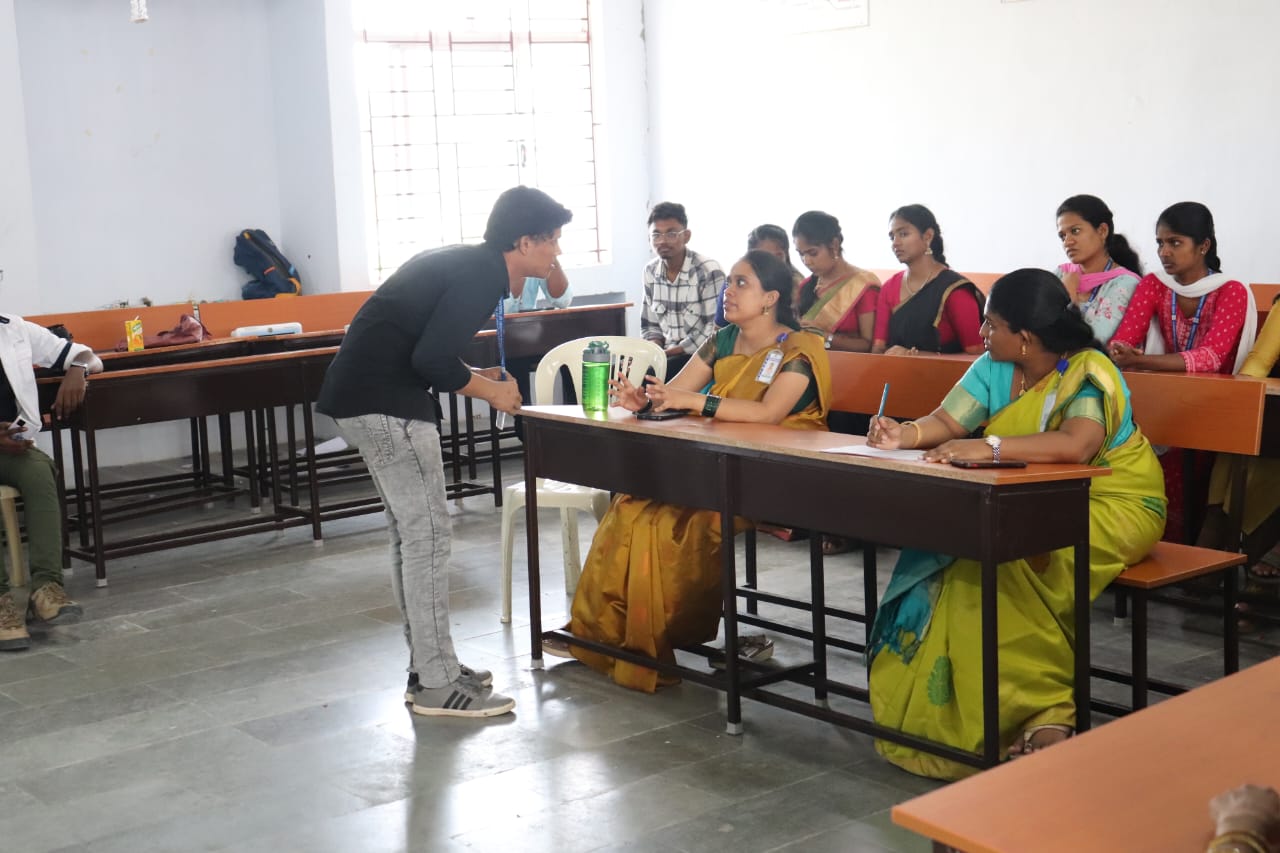
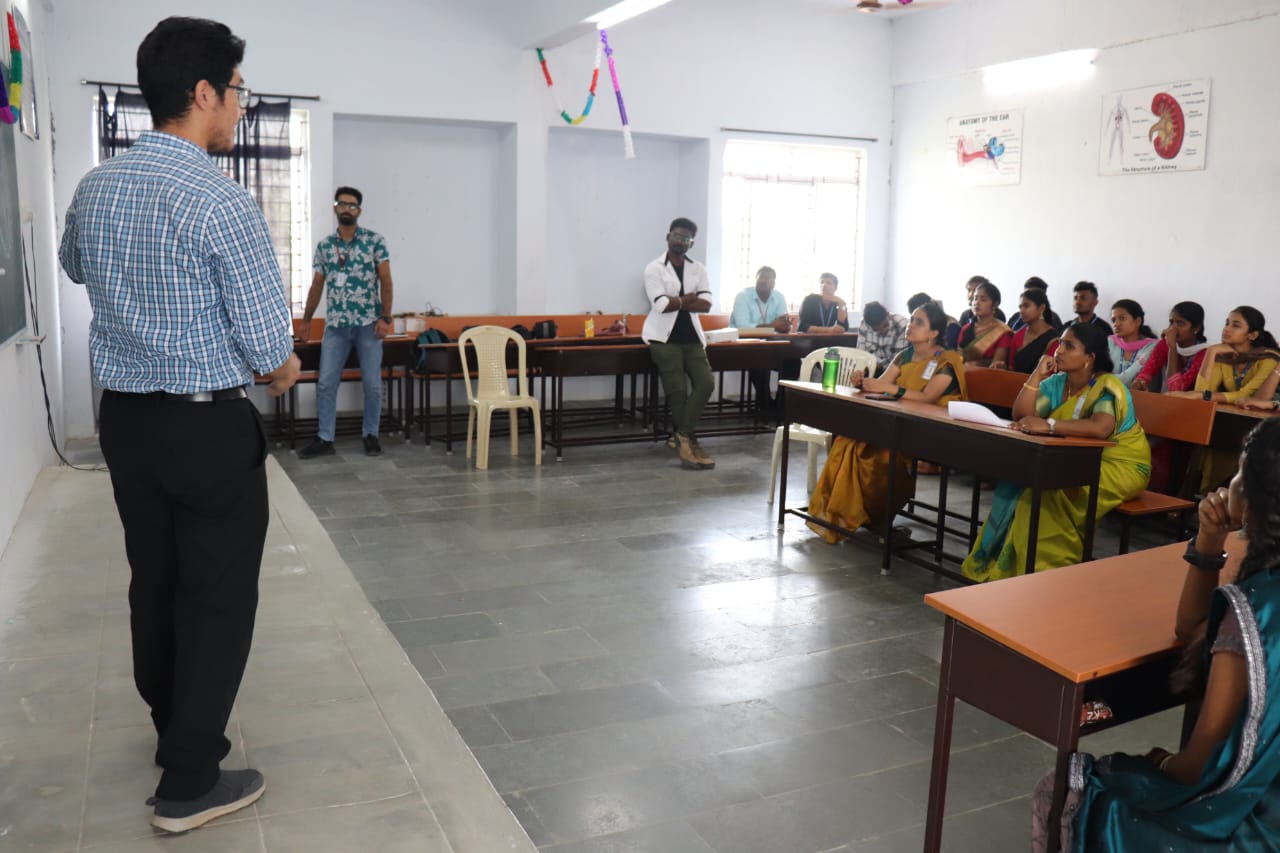
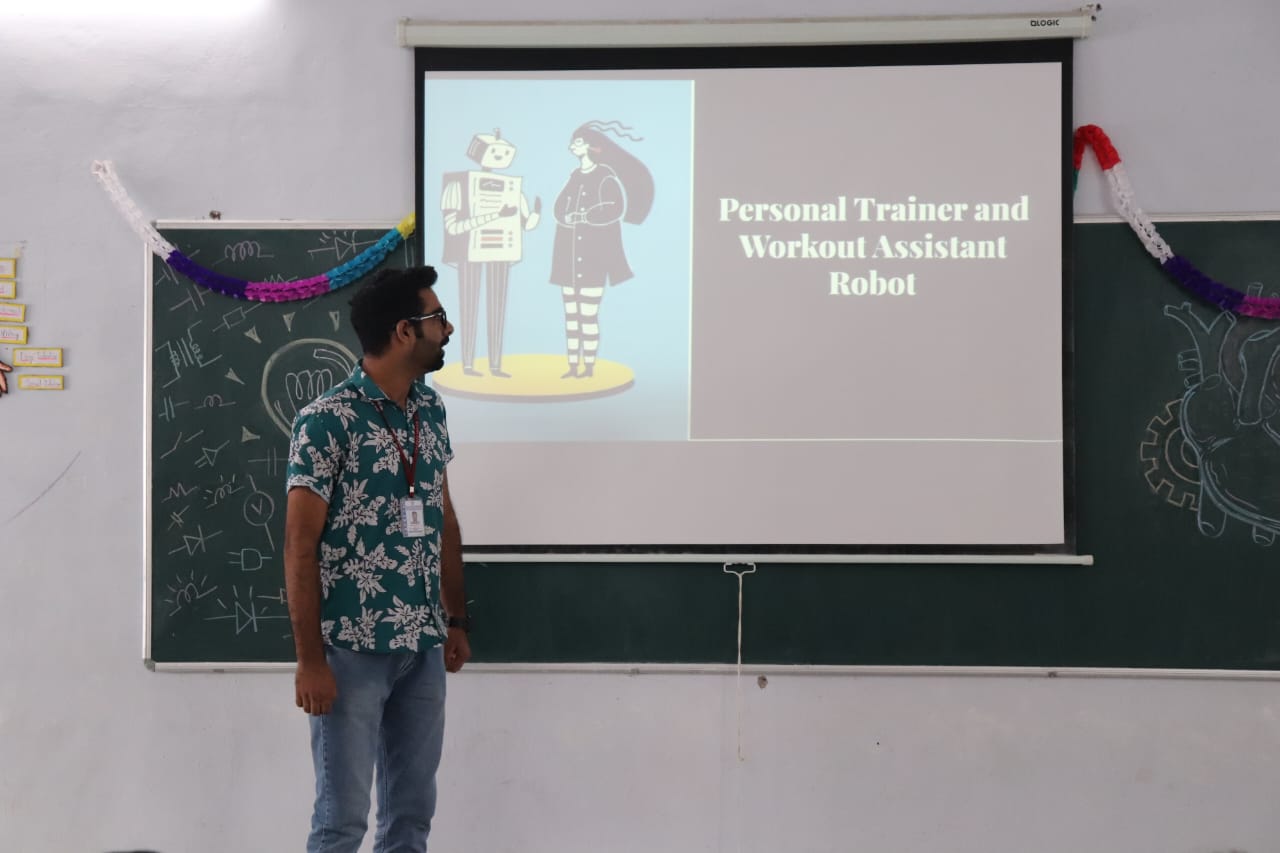
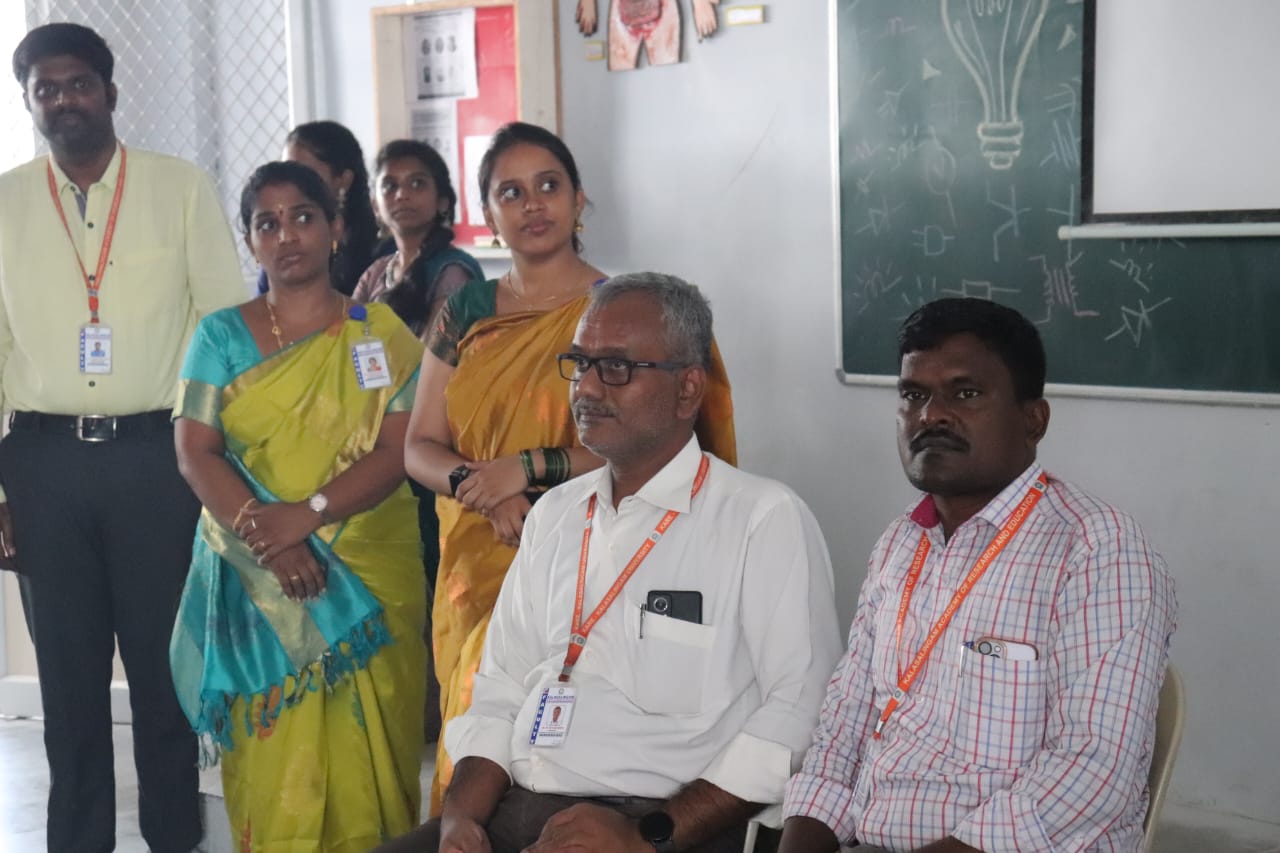
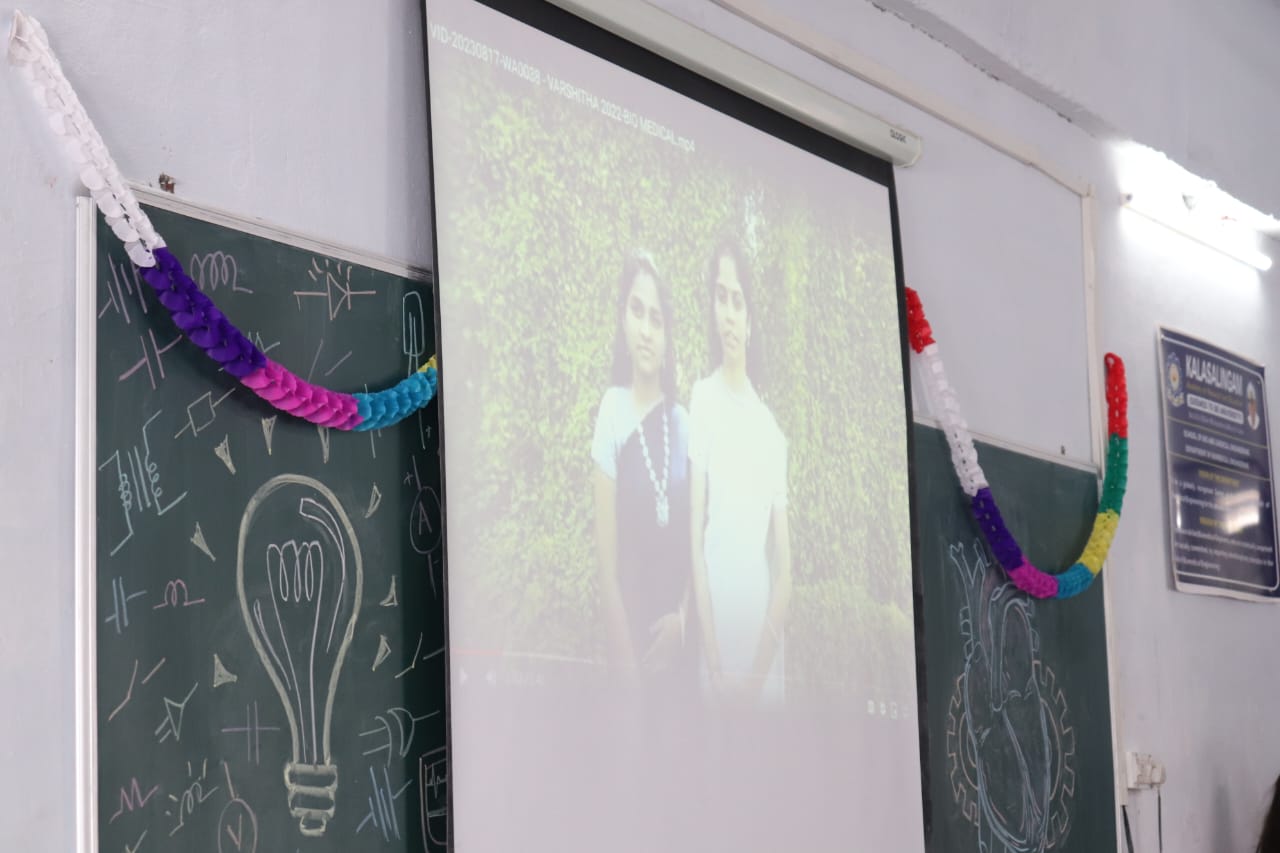
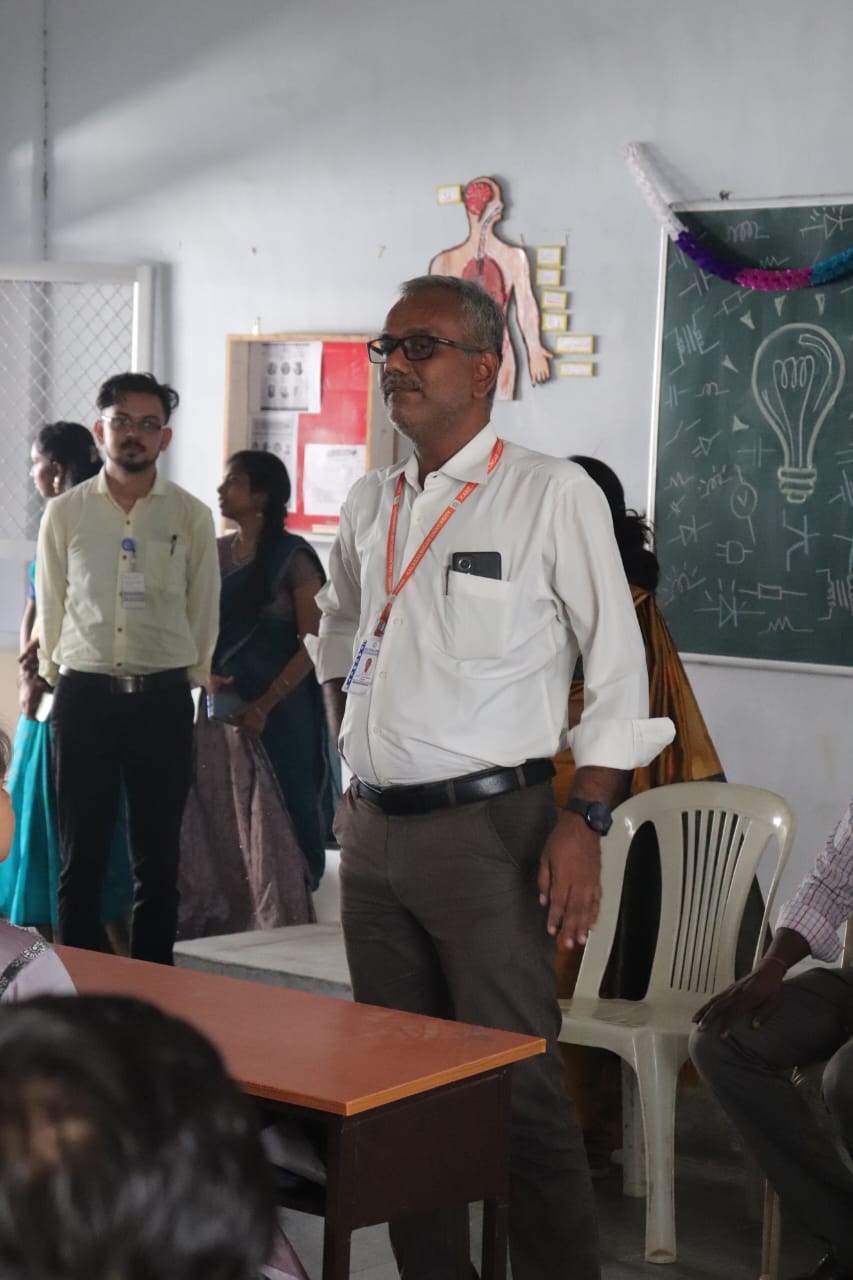


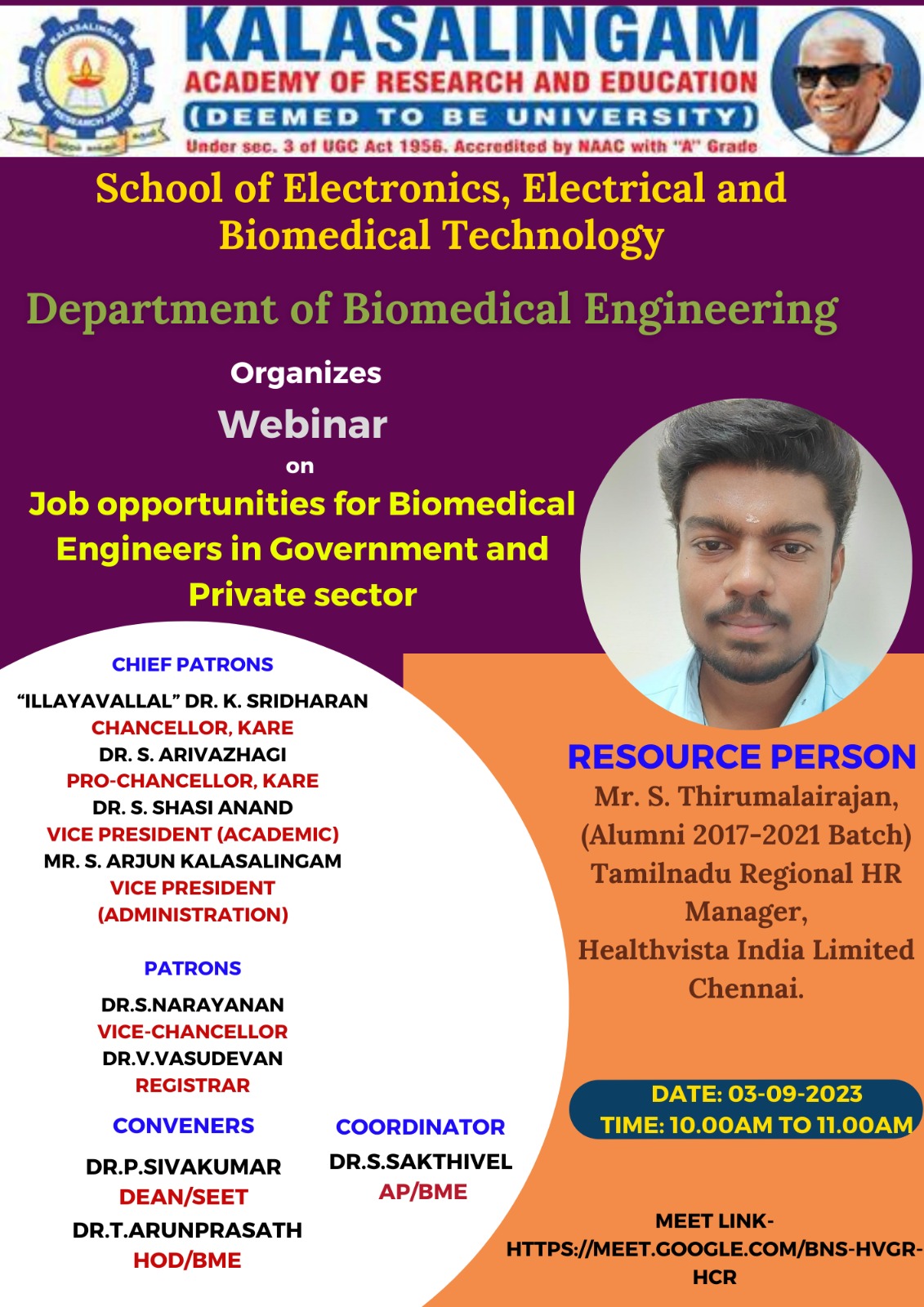

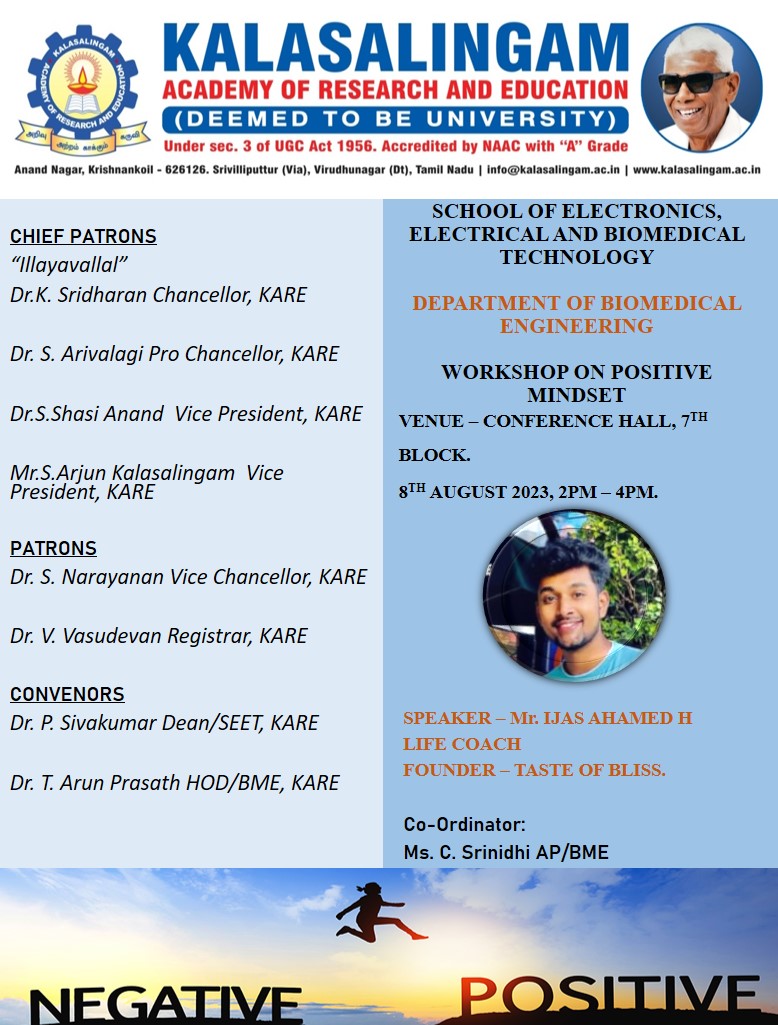


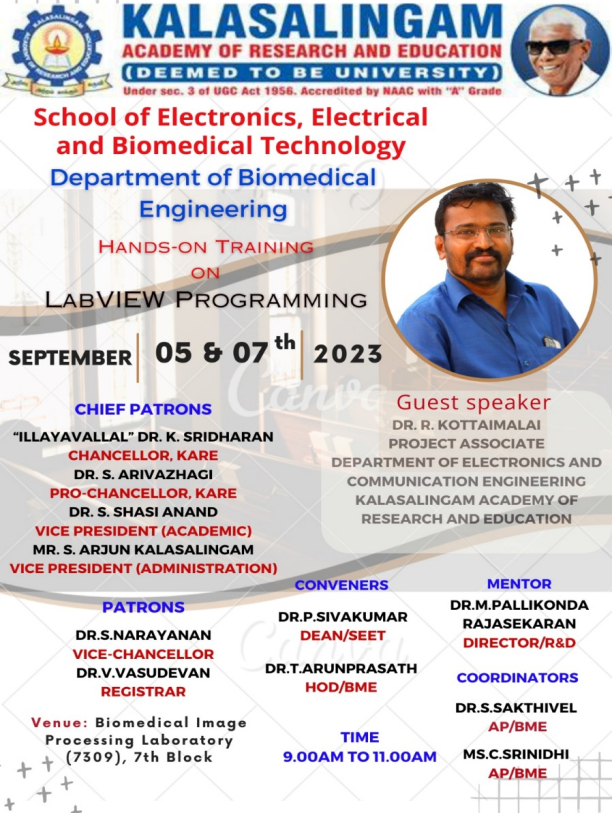
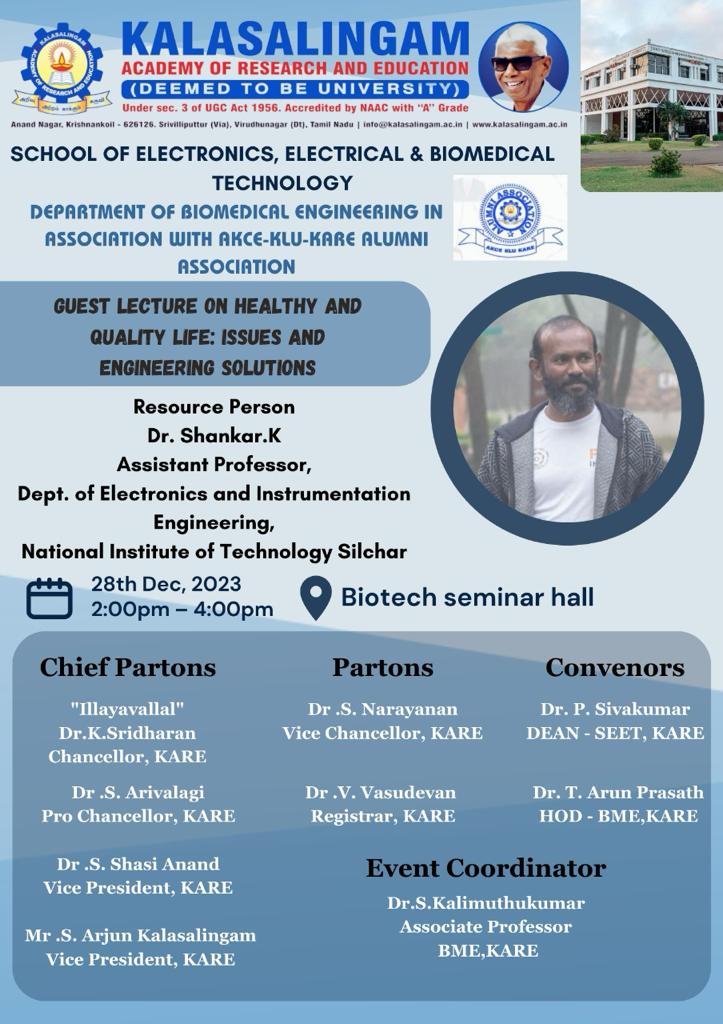



The students managed to develop 10 innovative products in 5 years. They have also got 23 patents and 55 publications under their name. The students have done wonders in the field of extracurricular activities apart from academics. The students took part in many National and International Events” and bagged lots of medals. The students at the Electronics and Communication Engineering Department are offered a One Credit Course from the Industry People and International Professors. The department invites resource persons from industries and abroad to handle value added courses in order to raise awareness and bring industrial skills to our students (15hours).









